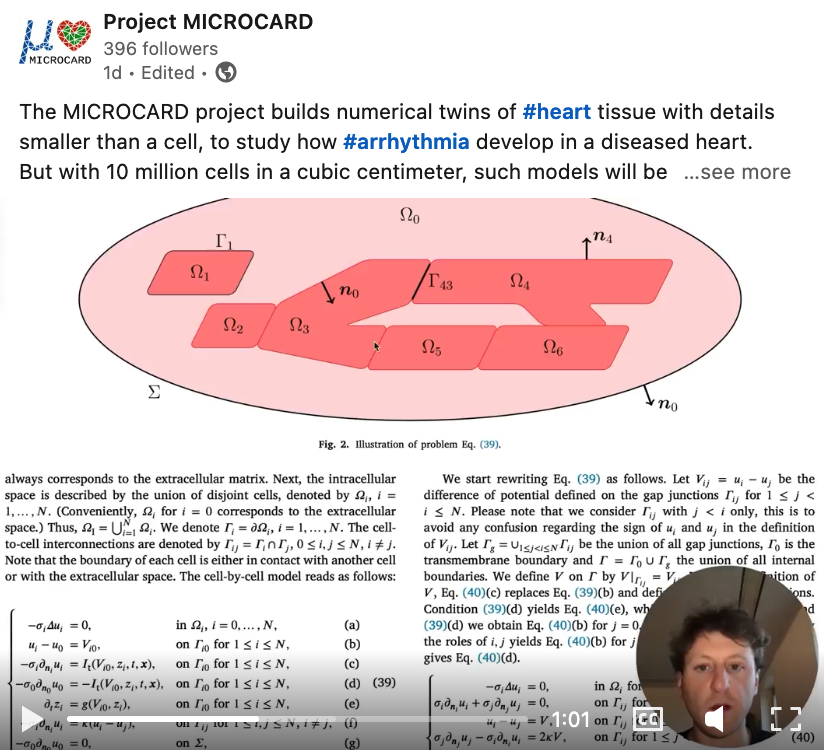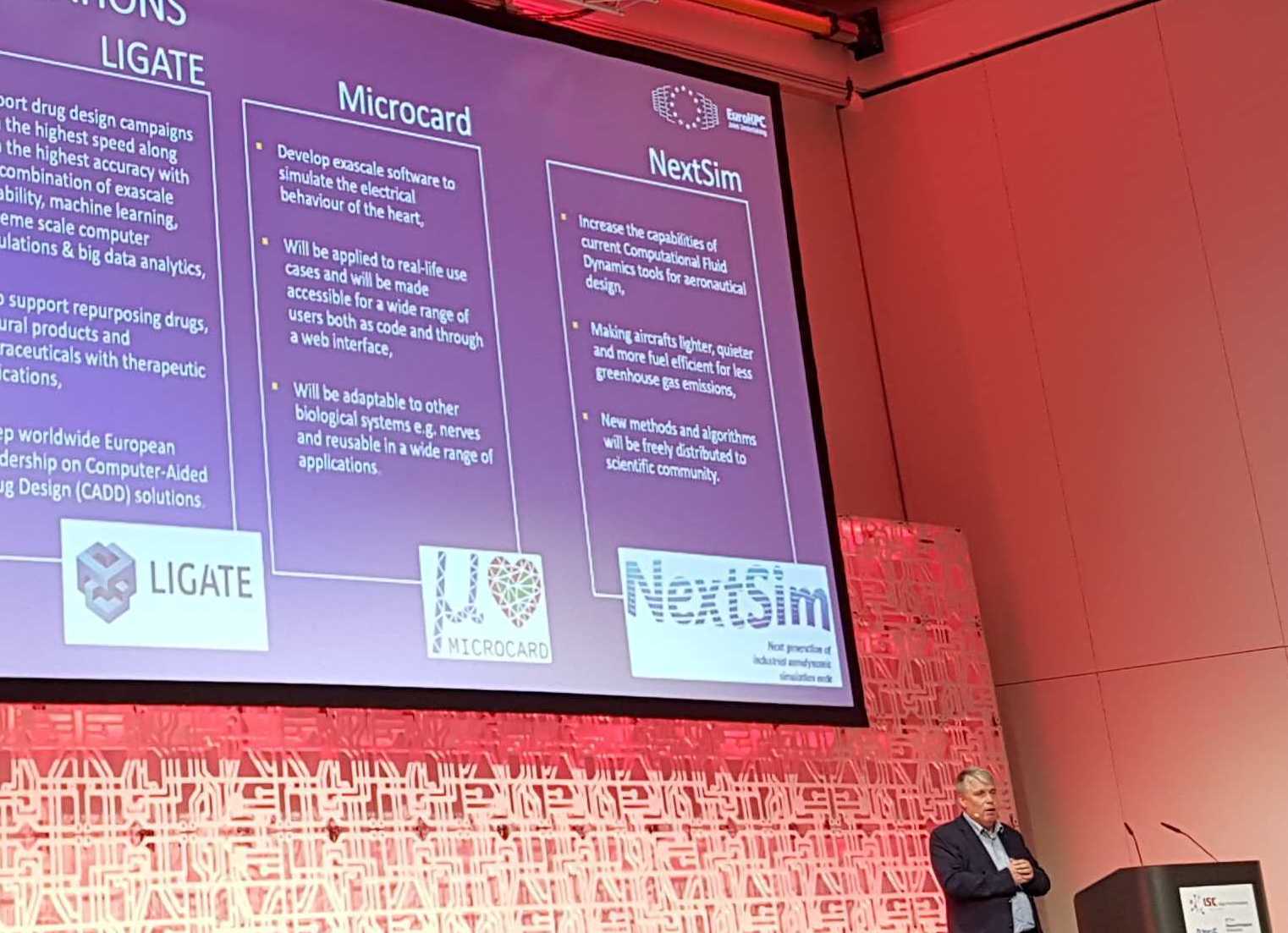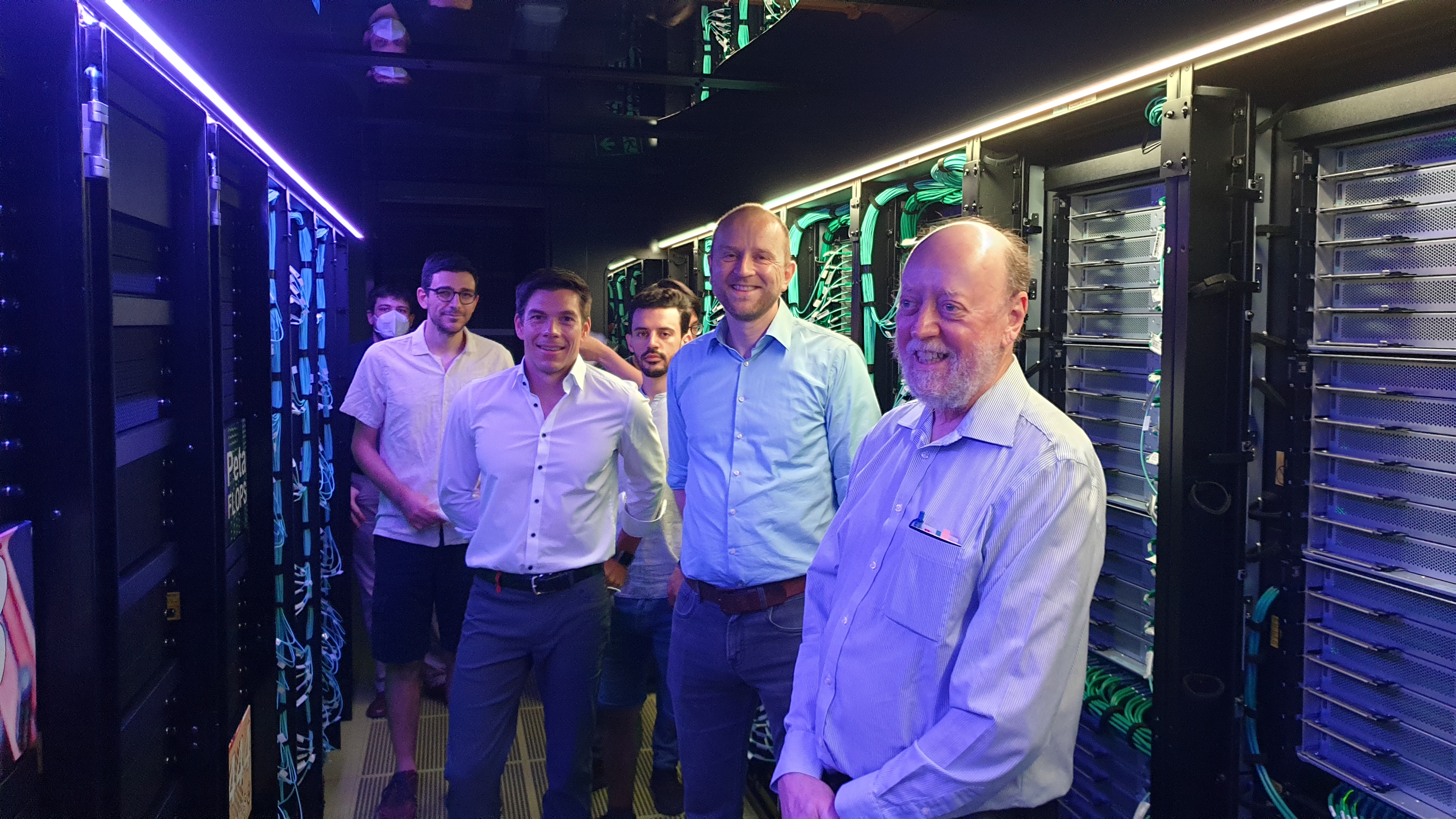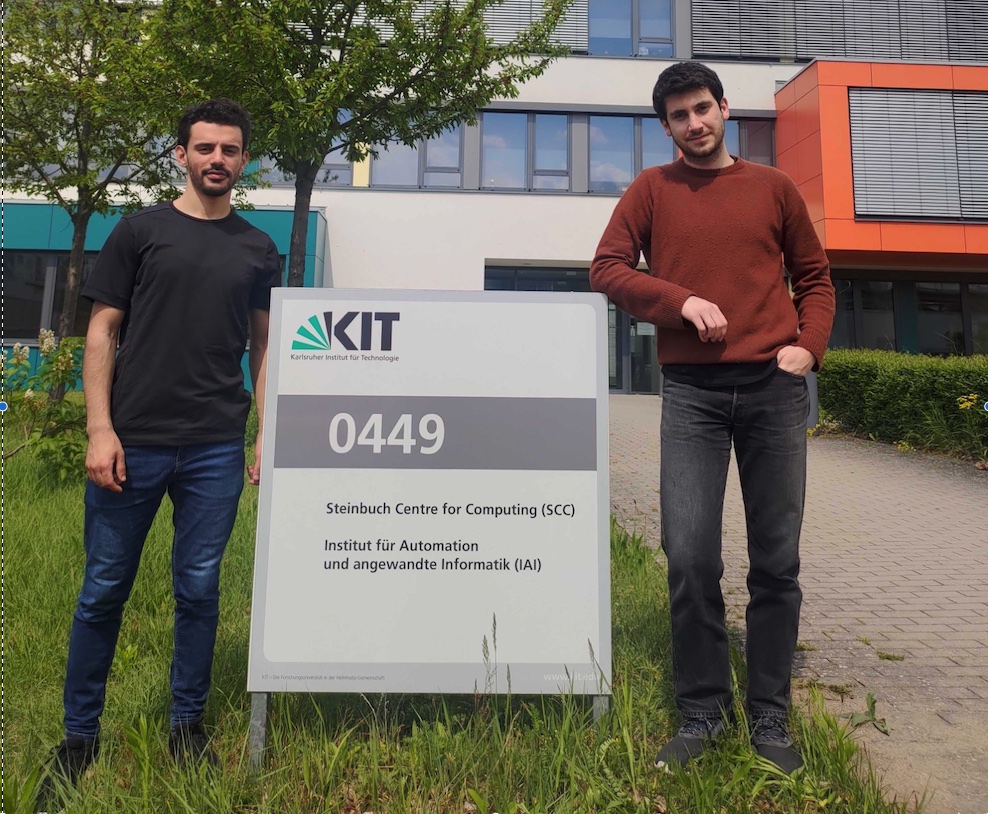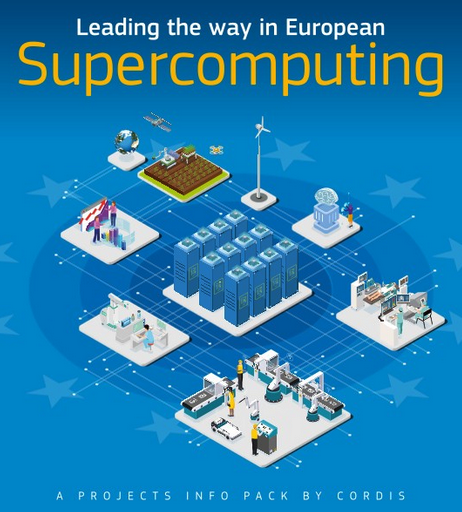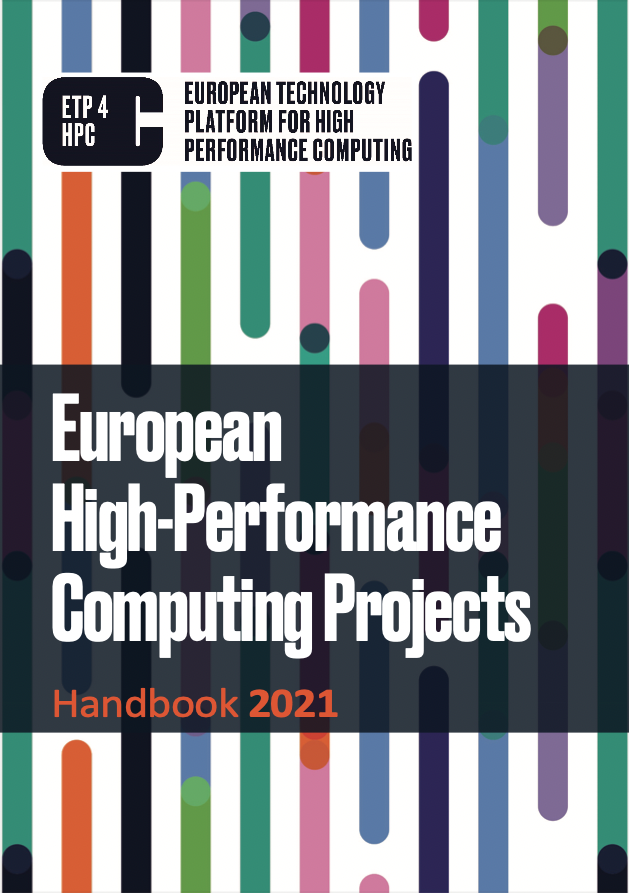MICROCARD News
19 December 2025: PhD defense Vincent Alba
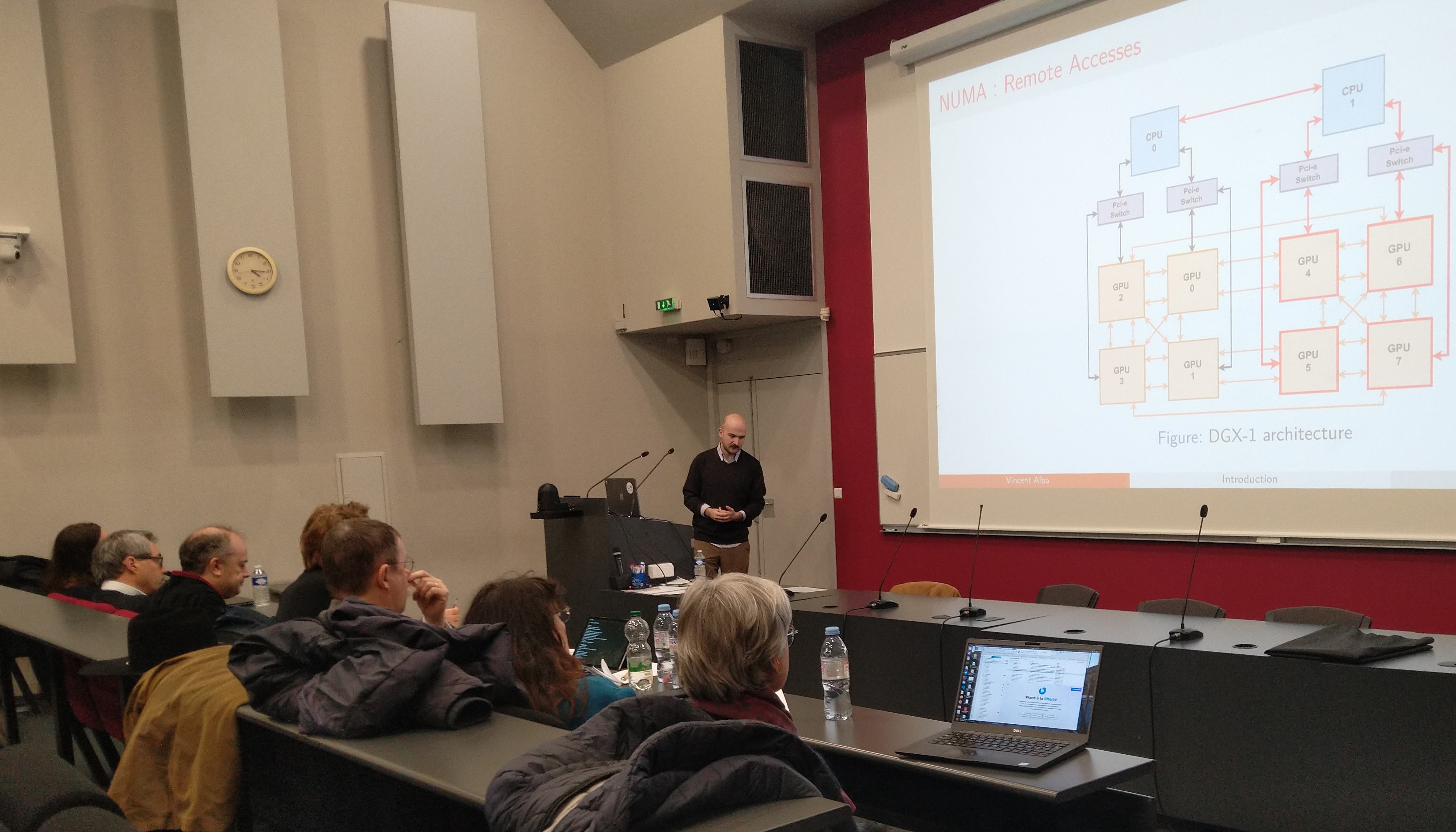
Vincent Alba successfully defended his PhD thesis "Resource dimensioning for heterogeneous architectures" at Université de Bordeaux. The thesis, directed by Amina Guermouche and Marie-Christine Counilh in the context of MICROCARD Work Package 6, concentrates on making cardiac membrane models faster and more energy-efficient on supercomputers with heterogeneous architectures, that is, with one or more GPUs next to CPUs on the same compute node.
25 November 2025: New project manager

Today our new project manager Priyanka Kota was really installed (hardware speaking) at Liryc thanks to Patrick Bouex and his colleagues. She's been with us for a week now and she's learning the trade.
13 November 2025: connecting at Liryc
Mark Potse presented MICROCARD at LiryCONNECT, an event organized by Liryc, the heart rhythm disease institute, to engage with medical practitioners and allied professionals.
openCARP user meeting in Bordeaux
The next openCARP user meeting will be held from March 3 to 5, 2026, at Liryc in Bordeaux.
The meeting addresses researchers at all career levels (students, PhD candidates, postdoctoral researchers, senior scientists) in academia and industry with research interests in computational modeling and simulation of cardiac electrophysiology. In addition to a beginner track with basic openCARP training, a more advanced exchange will be offered for experienced openCARP users.
Objectives
- Introduce the freely available electrophysiology modeling framework openCARP
- Hands-on training in solving cardiac modeling problems using the openCARP environment
- Give an overview of the state of the art in modeling cardiac electrophysiology
July 2025: MICROCARD-2 kick-off meeting
The MICROCARD-2 kick-off meeting was held online on July 4.

30 June 2025: PhD defense Zeina Chehade
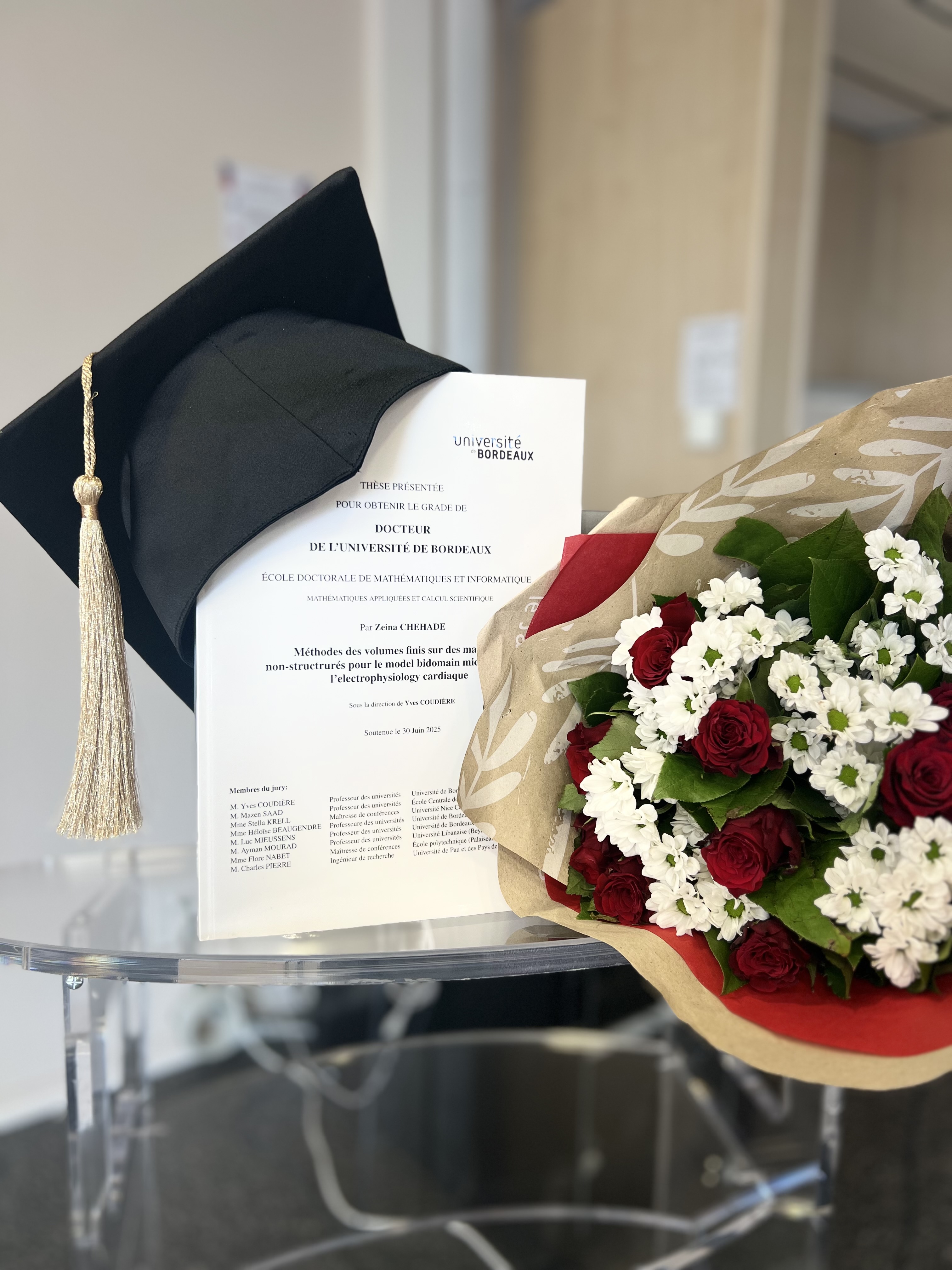
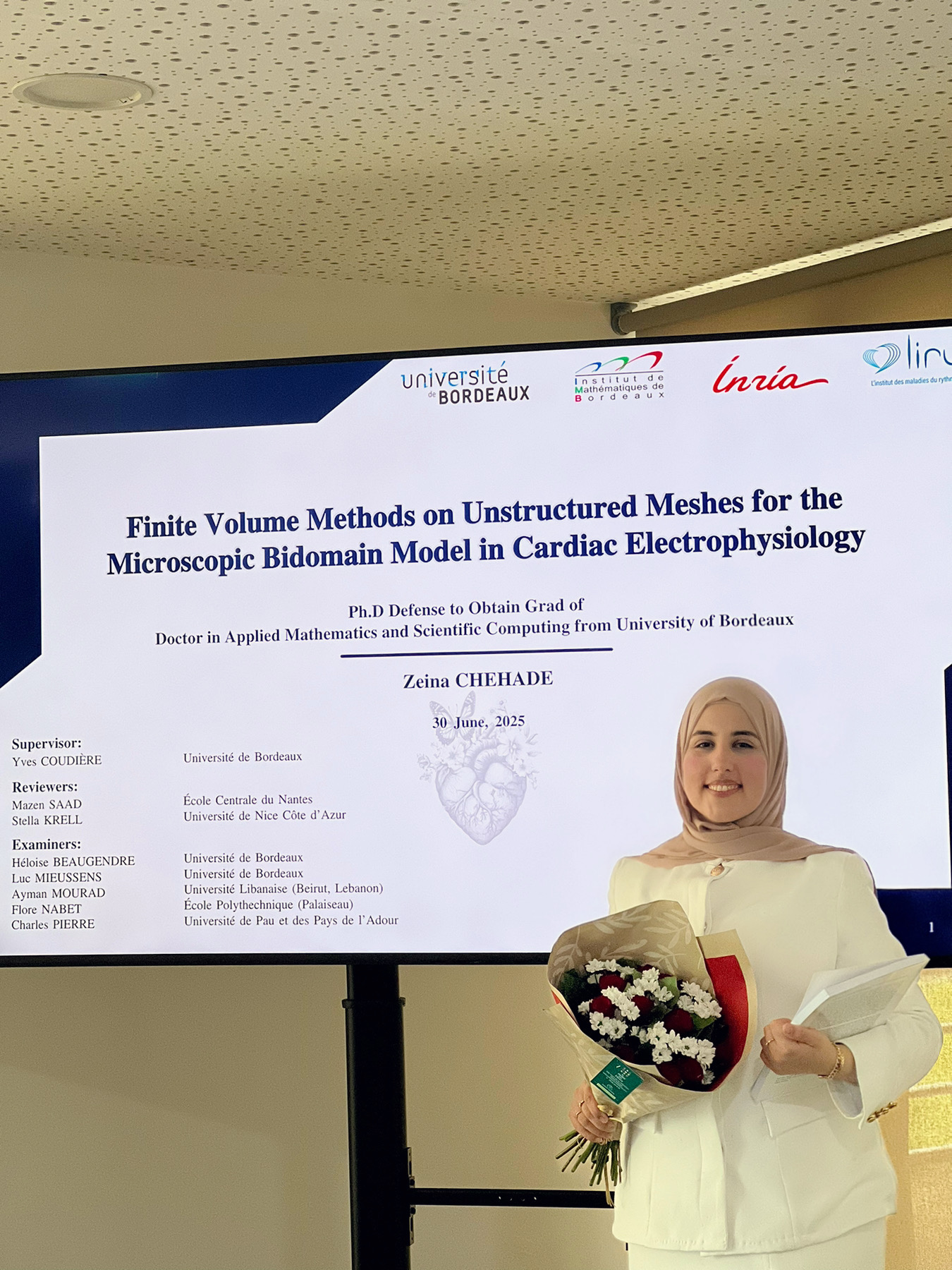
Zeina Chehade successfully defended her PhD thesis "Finite volume methods on unstructured meshes for the microscopic bidomain model in cardiac electrophysiology" in the Ada Lovelace room of the Inria center in Bordeaux. The thesis, on finite-volume methods for the cardiac EMI model, was directed by Yves Coudière and was part of Work Package 3 of the MICROCARD project (2021-2024).
June 2025: MICROCARD Summer Workshop in Oslo
The MICROCARD Summer Workshop, a teaching event held in conjunction with the Simula Summer School in Computational Physiology, was held from 23 to 25 June at Simula in Oslo. The 2½-day workshop was open to all students registered in the Simula Summer School as well as any other students, researchers, physicians, or industry partners interested in cell-by-cell modeling of the heart. Lectures were given by Hermenegild Arevalo, the organizer, and Edward Vigmond.

28 May 2025: it's conference season!
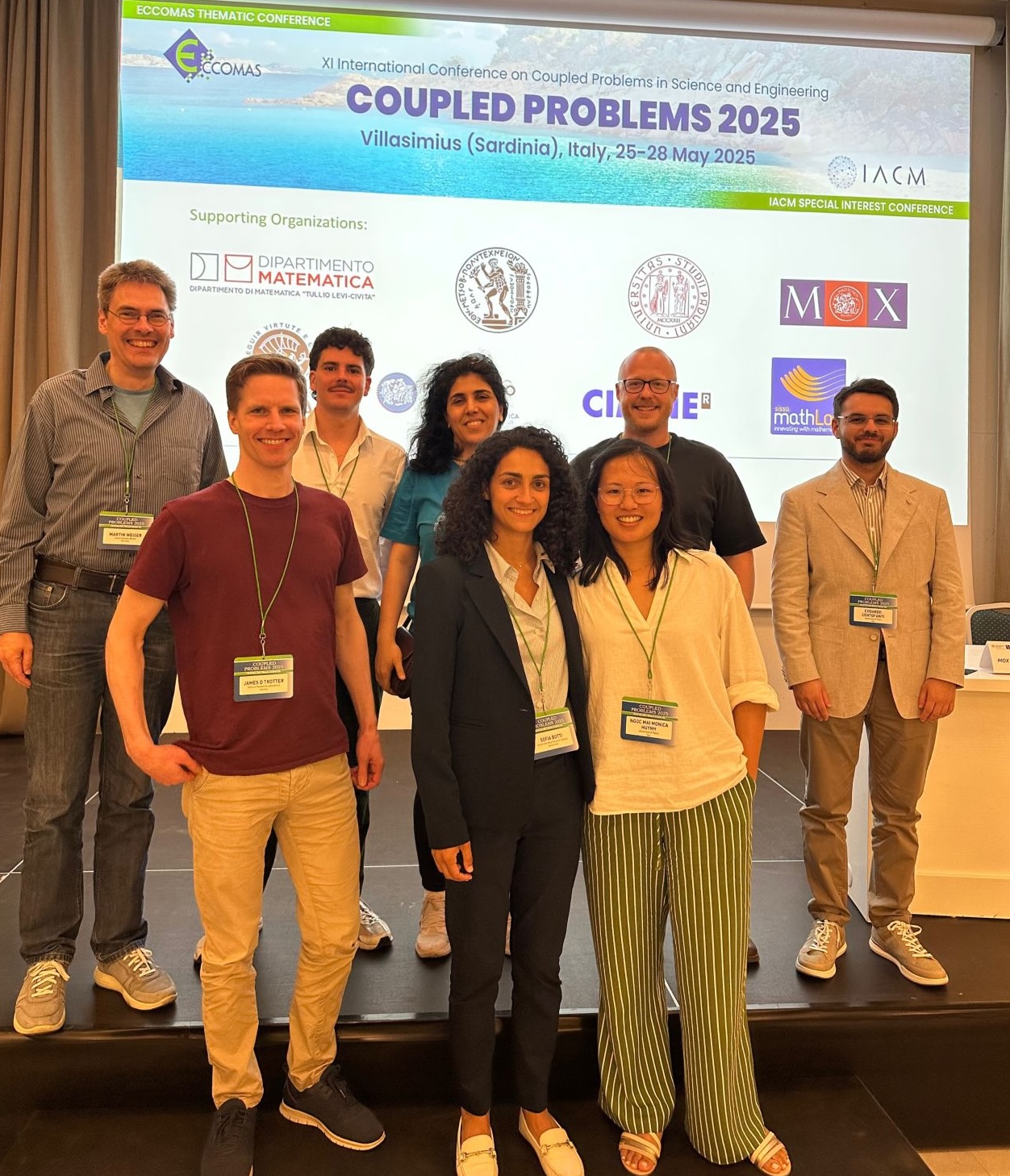
May and June are busy months with scientific conferences in all fields. For MICROCARD the season started well with the Coupled Problems 2025 meeting in Villasimius, Sardinia, begin attended by Martin Weiser, Fatemeh Chegini, Joshua Steyer, Fritz Goebel, Edoardo Centofanti, James D. Trotter, Ngoc Mai Monica Huynh, and our former colleague Sofia Botti
Coming soon are The Math2Product 2025 meeting in Valencia, Spain, the 39th IEEE International Parallel and Distributed Processing Symposium in Milan, the ISC High Performance 2025 congress in Hamburg, Germany, the Summer school on computational cardiology in Milan, the MICROCARD Summer Workshop in Oslo, and the 29th International Conference on Domain Decomposition Methods (DD29) in Milan.
April 2025: Working cell-by-cell model in openCARP
We are now confident that our implementation of the EMI model (extracellular-membrane-intracellular or "cell by cell") in openCARP works. Initial benchmark results, still on a relatively small scale, have been reported. We are now working on the performance and scalability of the code.
3 March 2025: SIAM news article
SIAM, the Society for Industrial and Applied Mathematics, published a news article about the openCARP software.18 December 2024: Thesis defense Edoardo Centofanti
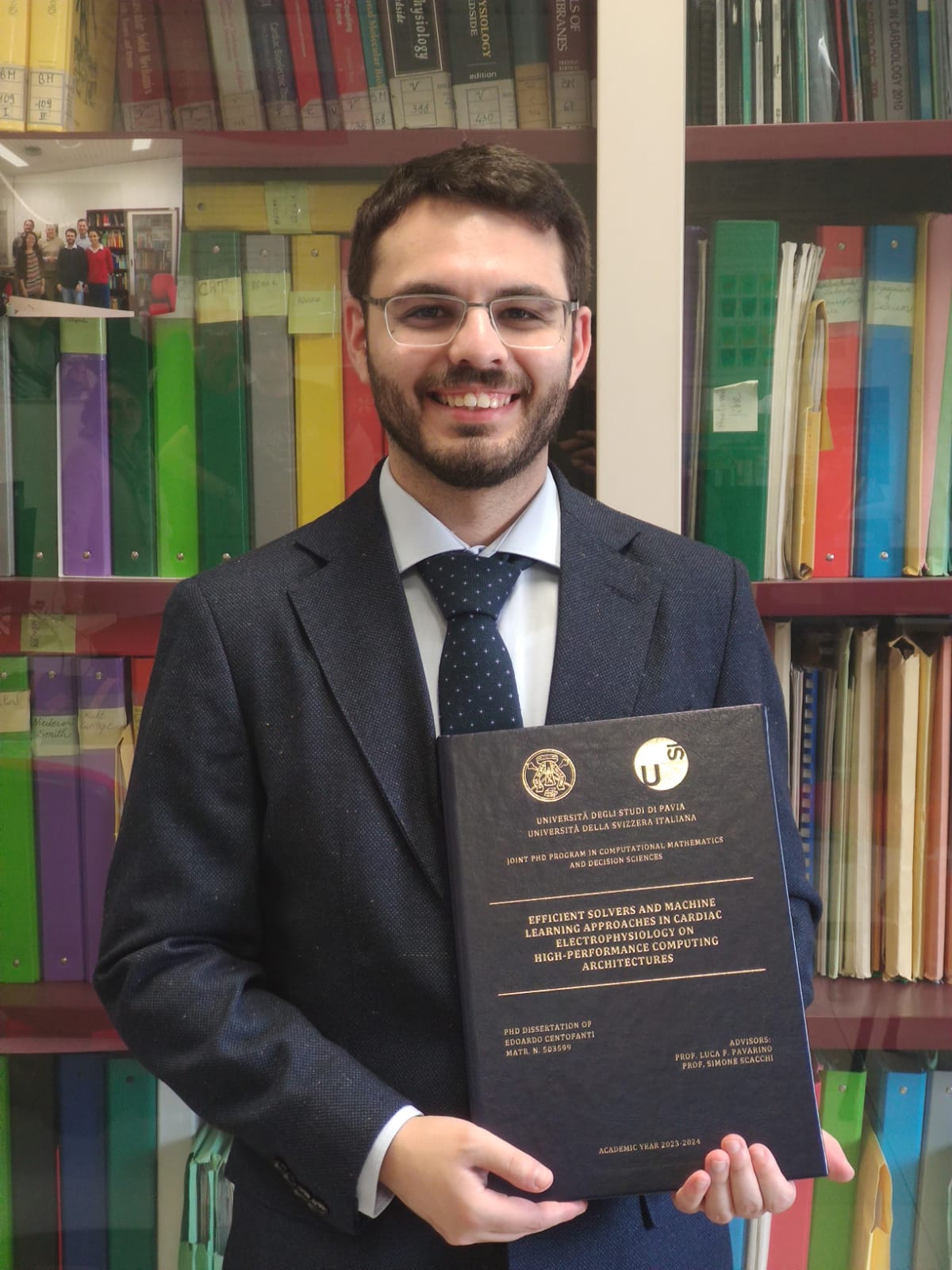
Edoardo Centofanti successfully defended his thesis "Efficient Solvers and Machine Learning Approaches in Cardiac Electrophysiology on High-Performance Computing Architectures" at the Università degli studi di Pavia, in a joint PhD program with Università della Svizzera italiana. His advisers were Luca Pavarino and Simone Scacchi.
Edoardo: "Completing my doctorate as part of the MICROCARD project was a real privilege. It gave me the opportunity to work alongside talented and inspiring colleagues in an international and inclusive environment. I am deeply grateful to everyone who supported me throughout this journey."
In the MICROCARD project Edoardo worked on the development, testing and implementation of preconditioners, algorithms that help to solve the huge sets of linear equations that our models give rise to.
25 November 2024: new open positions
Two positions are currently open on our jobs page. There are more to come next month or next year!
1 November 2024: MICROCARD is a Centre of Excellence
Today MICROCARD officially restarted as a Centre of Excellence, co-funded by EuroHPC and national funding organizations. While our institutions are doing the paperwork, we are organizing our first meetings in the new composition. Pretty soon, we will be opening new jobs too.
31 October 2024: Mmg release 5.8.0

Mmg version 5.8.0 was released. Mmg is a set of tools and software libraries that we use to construct and improve meshes of cardiac tissue on which we can run our simulations. Release 5.8.0 is much more robust than previous versions when dealing with meshes with many internal boundaries, and comes with an improved developer documentation. The increased robustness in particular is crucial for the MICROCARD project. Most of the work in this release was done by our members Algiane Froehly, Laetitia Mottet, Corentin Prigent and Mark Potse.
7 October 2024: new MICROCARD Grant Agreement signed
The MICROCARD project ended on 30 September but MICROCARD will be reborn as a Centre of Excellence on 1 November 2024. It will be funded for 30 months by EuroHPC call HORIZON-EUROHPC-JU-2023-COE-03. The European Union signed the Grant Agreement today so the starting date of 1 November 2024 is now certain.
1 October 2024: new engineer for the MMG Consortium

Corentin Prigent has become the new software engineer for the Mmg Consortium, the organization that maintains the Mmg software. Corentin has worked on the MICROCARD project for two years, mainly to robustify the mmg3d software, that is, to make it able to treat the very complex meshes that we produce to represent cardiac tissue. As engineer for the Mmg consortium, Corentin is succeeding Algiane Froehly, who had been his supervisor in MICROCARD, and who in turn will join Inria's CAGIRE team to work on ECOGEN, an open-source code that simulates multiphase compressible flows.
30 September 2024: end of MICROCARD

Today is the last day of the MICROCARD project and the beginning of a short gap before it will be reborn as a Centre of Excellence. Consequently, several members working on project-funded contracts are moving on to new employments, new frontiers, and new challenges.
Nicolas Ducarton is one of them. He created the fault-tolerance capability in the openCARP code, allowing our future simulations to continue working when one out of several compute nodes of a supercomputer fails. In addition Nicolas worked on the integration of dynamic load-balancing functionality, overlapping of different computations, and the reduction of data transfers between CPUs and GPUs. He won't go very far though: he'll be working on fault-tolerance in the StarPU code, in the same Inria team as before.
25 September 2024: Thesis defense Arun Thangamani
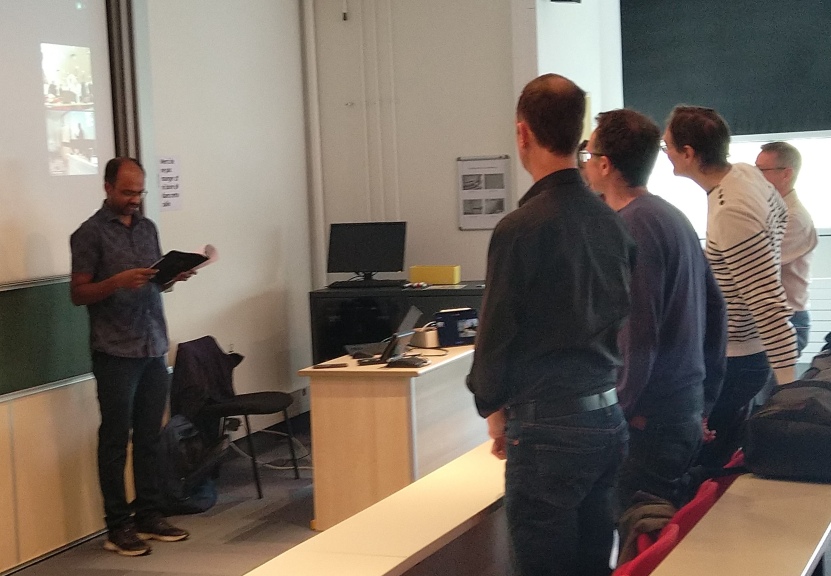
Arun Thangamani successfully defended his thesis "Optimized Code Generation of Parallel and Polyhedral Loop Nests using MLIR" at the University of Strasbourg. Arun was advised by Stéphane Genaud, Professor, and Vincent Loechner, associate professor at the University of Strasbourg. The jury consisted of Guillaume Latu, research director at CEA Cadarache, France; Alexandra Jimborean, Ramon y Cajal Researcher at the University of Murcia, Spain; Sylvain Contassot-Vivier, Professor at Université de Lorraine, France; and Mark Potse, research professor at Université de Bordeaux, France.
This is the first thesis supported completely by the MICROCARD project. Arun's work helped to speed up the computation of ionic currents in openCarp, by automatically generating optimal code for different platforms such as vector CPUs and GPUs. Especially for more complex ionic models, this can speed up performance by an order of magnitude while using less energy.
4-14 September 2024: Three meetings in southern Germany
MICROCARD members participated in three consecutive cardiac physiology/computing meetings that took place in southern Germany.
4-6 September: the Virtual Physiological Human (VPH) meeting in Stuttgart.
8-11 September: the Computing in Cardiology (CinC) meeting in Karlsruhe.
12-14 September: the Cardiac Physiome combined with the final MICROCARD workshop in Freiburg.
Together these meetings saw over two dozen MICROCARD contributions, an appropriate goodbye to the project which formally ends on 30 September.
1 September 2024: Laetitia Mottet becomes an associate professor at Bordeaux INP

Laetitia Mottet is the second MICROCARD member to obtain an associate professorship at the engineering school Bordeaux INP. She left the project to start teaching computational fluid dynamics, after having worked with us for two years on the very challenging topic of parallel mesh processing. In particular she implemented parallel level-set discretization in the ParMmg software. Fortunately she could still join us for the final MICROCARD workshop and Cardiac Physiome meeting in Freiburg, on 14 September.
21 to 26 July 2024: 16th World Congress on Computational Mechanics, Vancouver

Our delegation at the 16th World Congress on Computational Mechanics and 4th Pan American Congress on Computational Mechanics WCCM 2024 - PANACM 2024 has spread MICROCARD achievements among research scientists working in computational mechanics.
Luca Pavarino and Rolf Krause presented recent work on nonlinear solvers and nonlinear preconditioners for cardiac applications, ranging from electromechanics to simulations of heart valves. From a modeling perspective, former MICROCARD member Sofia Botti gave a talk on her present work: a novel ionic model for atrial stem cells.
Talks by Ngoc Mai Monica Huynh and Fatemeh Chegini focused on MICROCARD work on preconditioners, solvers and data compression, which are among the core points of the project.
24-26 June 2024: MICROCARD summer school in Oslo

In collaboration with Simula Research Laboratories, MICROCARD organized a summer school to teach students about its backgrounds and results. Lectures were given by Olivier Bernus (IHU Liryc, Bordeaux), Eva Rog-Zielinska (Universitäts-Herzzentrum Freiburg), Corentin Prigent (University of Bordeaux), Edward Vigmond, (University of Bordeaux), Hermenegild Arevalo (Simula), Pietro Benedusi (Università della Svizzera italiana), and Alessandro Gatti (Simula) on topics ranging from nanoscale cardiac imaging to actual usage of the Mmg and openCARP software.
3-7 June 2024: ECCOMAS 2024 in Lisbon

No less than eight MICROCARD talks were given at the ECCOMAS 2024 meeting in Lisbon, Portugal, where Simone Scacchi, Rolf Krause, Simone Pezzuto, and Martin Weiser organised a minisymposium Simulating Cardiac Function with Cellular and Subcellular Resolution. Presentations were given by Martin Weiser, Simone Pezzuto, Fatemeh Chegini, Joshua Steyer, Fritz Goebel, Ngoc Mai Monica Huynh, Zeina Chehade, and Edoardo Centofanti.
27-31 May 2024: IPDPS in San Francisco
A small MICROCARD delegation attended the 38th IEEE International Parallel and Distributed Processing Symposium, which took place in San Francisco from May 27th to 31st. Vincent Alba presented his paper Performance portability of generated cardiac simulation kernels through automatic dimensioning and load balancing on heterogeneous nodes, with authors from Strasbourg and Bordeaux.
6 May 2024: MICROCARD-2!
Our proposal for MICROCARD to continue as a "Center of Excellence" leads the ranking for the call HORIZON-EUROHPC-JU-2023-COE-03 and is now in the negotiation stage. This will give us the chance to build on our project results and test our software on actual exascale supercomputers, which are just arriving in Europe.
16-18 April 2024: INdAM workshop in Rome

MICROCARD was well represented at the workshop "Mathematical and Numerical Modeling of the Cardiovascular System" at the Italian Institute of Higher Mathematics (INdAM) in Rome. The workshop, co-organized by Luca Pavarino and Simone Scacchi, included talks by Simone Pezzuto, Edward Vigmond, Fatemeh Chegini, Edoardo Centofanti, Ngoc Mai Monica Huynh, Mark Potse, Sofia Botti, and Aslak Tveito. Our presentations covered, among others, an introduction and rationale for the MICROCARD project, the algebraic adaptivity approach used to solve the cell-by-cell problem, and the innovative preconditioning methods that are used.
23 April 2024: OpenCARP release 15.0
OpenCARP just released version 15 with numerous contributions made by MICROCARD members.
28 January - 1 February 2024: 28th International Conference on Domain Decomposition Methods
Several MICROCARD members stood the heat to attend the 28th International Conference on Domain Decomposition Methods (DD28) meeting at King Abdullah University of Science and Technology (KAUST) in Saudi Arabia. Edoardo Centofanti presented recent developments in scalable multilevel preconditioners for the cardiac cell-by-cell model.
16 November 2023: MICROCARD at Liryc
Mark Potse and Laetitia Mottet will present MICROCARD and in particular our results in mesh adaptation at the yearly scientific workshop of the Liryc heart rhythm disease institute.
8 November 2023: paper on a boundary integral formulation for the cell-by-cell model
The article Boundary integral formulation of the cell-by-cell model of cardiac electrophysiology was published in Engineering Analysis with Boundary Elements. See a one-minute introduction here on LinkedIn!
The three-dimensional cell-by-cell models that we want to simulate in the MICROCARD project require huge resources, so it is interesting to also investigate alternatives. In this paper, Giacomo Rosilho de Souza, Simone Pezzuto, and Rolf Krause reformulated the problem on the cellular membrane alone, thanks to a boundary integral formulation. This formulation allows to drastically reduce the problem size, as Giacomo explains in this one-minute clip.
Admittedly these are two-dimensional tests, the method is not easy to implement, and it would be hard to extend it to millions of cells in three dimensions. But if we find solutions for these problems, it will greatly facilitate simulations of whole-heart electrophysiology, which are now too big even for the largest supercomputers on the planet.
1 September 2023: Euro-par conference 2023 in Limassol, Cyprus
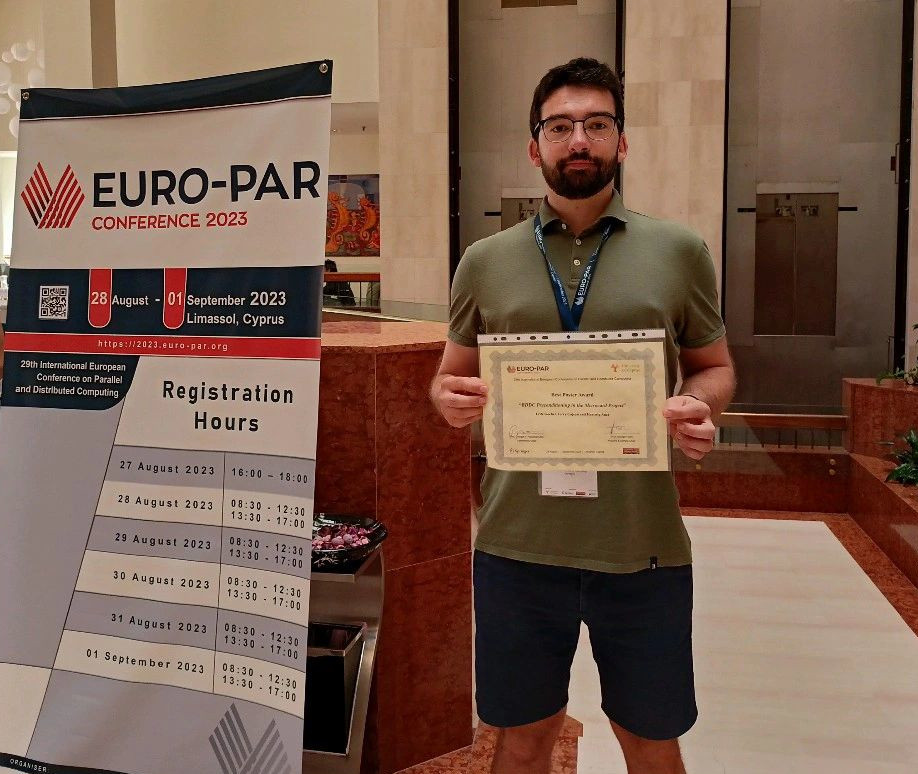
Terry Cojean, Fritz Goebel and Hartwig Anzt won a best poster award at the 29th International European Conference on Parallel and Distributed Computing (Euro-Par) which took place from 28 August to 1 September 2023 in Limassol, Cyprus.
The prize-winning poster was entitled BDDC Preconditioning in the Project MICROCARD and reported on the implementation of BDDC preconditioners in the Ginkgo linear algebra library. BDDC preconditioners are numerical methods that are crucial for simulating cardiac electrophysiology at the super-high resolution and scale that our project needs. The prize shows that the actual implementation of these methods (translating math to efficient code) is not only enjoyed by the users, but also by fellow computer scientists.
25 August 2023: ICIAM 2023 meeting in Tokyo
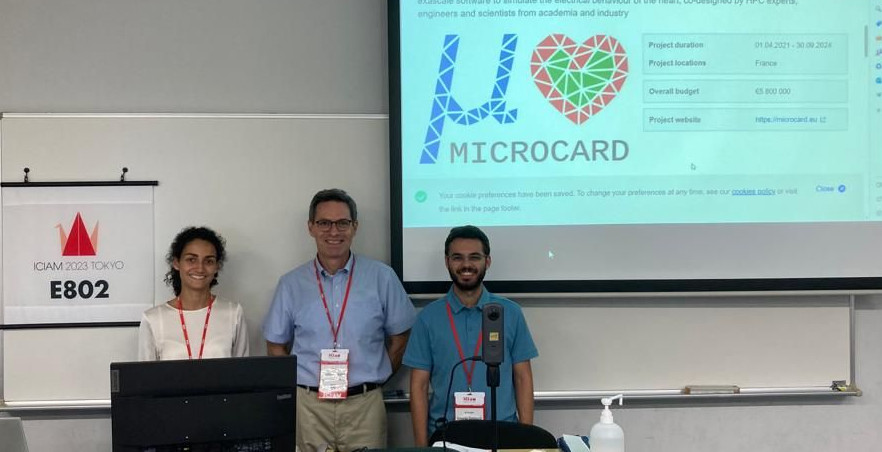
Ten presentations are given by MICROCARD members at the 10th International Congress on Industrial and Applied Mathematics (ICIAM 2023), which takes place in Tokyo from 20 to 25 August.
In his talk Implementing Platform Portable Solvers and Preconditioners for Cardiac Simulations in the MICROCARD Project, Fritz Goebel showed how the Ginkgo library is accelerating the openCARP software, in particular for the new BDDC preconditioners that we use for cell-by-cell models.
Ngoc Mai Monica Huynh discussed the mathematics behind these preconditioners in her presentation Scalable multilevel preconditioners for hybrid-DG discretizations of nonlinear cell-by-cell cardiac models while Luca Pavarino discussed this class of preconditioners in general, in Scalable domain decomposition solvers for cardiac reaction-diffusion cell-by-cell models.
Fatemeh Chegini showed how these methods are actually used to run cell-by-cell models comprising several hundreds of cells in her talk entitled Higher Order Time Integration for EMI Cardiac Electrophysiology Simulations with Nested Subset Selection and BDDC Preconditioning.
(more to come)
5 July 2023: sad news
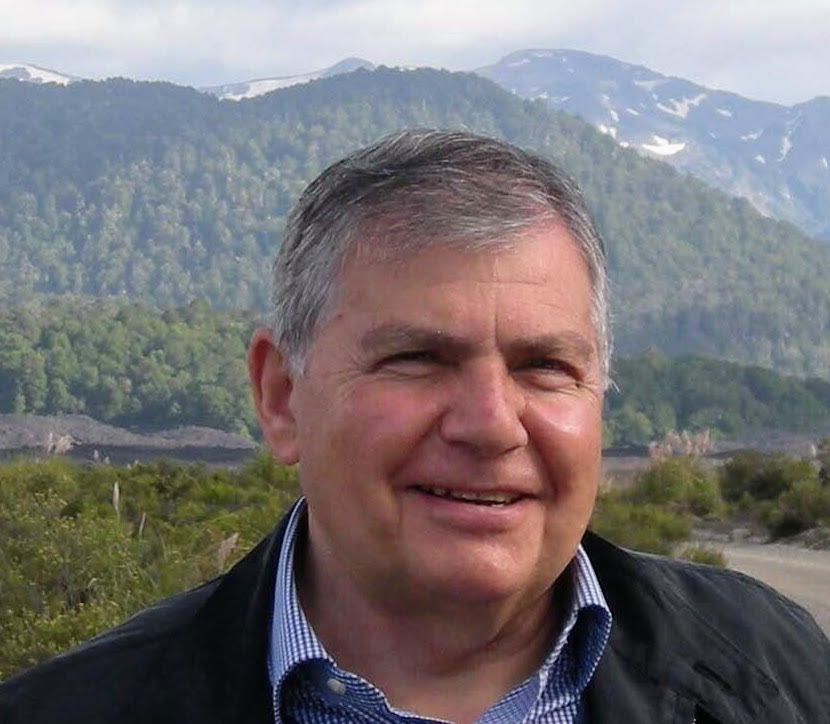
We recently learned that Professor Piero Colli Franzone passed away in June 2023 at the age of 76. Piero Colli Franzone was an Emeritus professor of Numerical Analysis at the Department of Mathematics of the University of Pavia. He received a degree in Mathematics from the University of Pavia in 1969. He is well known for his numerous contributions to the field of computational electrocardiology, in particular for his work on the bidomain model, the complex shape of local unipolar electrograms (in collaboration with Bruno Taccardi), eikonal equations, inverse problems and anisotropic front propagation. He contributed to MICROCARD as an adviser in the Pavia group.
4 and 5 July 2023: the 3rd MICROCARD workshop in Strasbourg!
Find the program and zoom link here.19 to 22 June 2023: FIMH meeting in Lyon
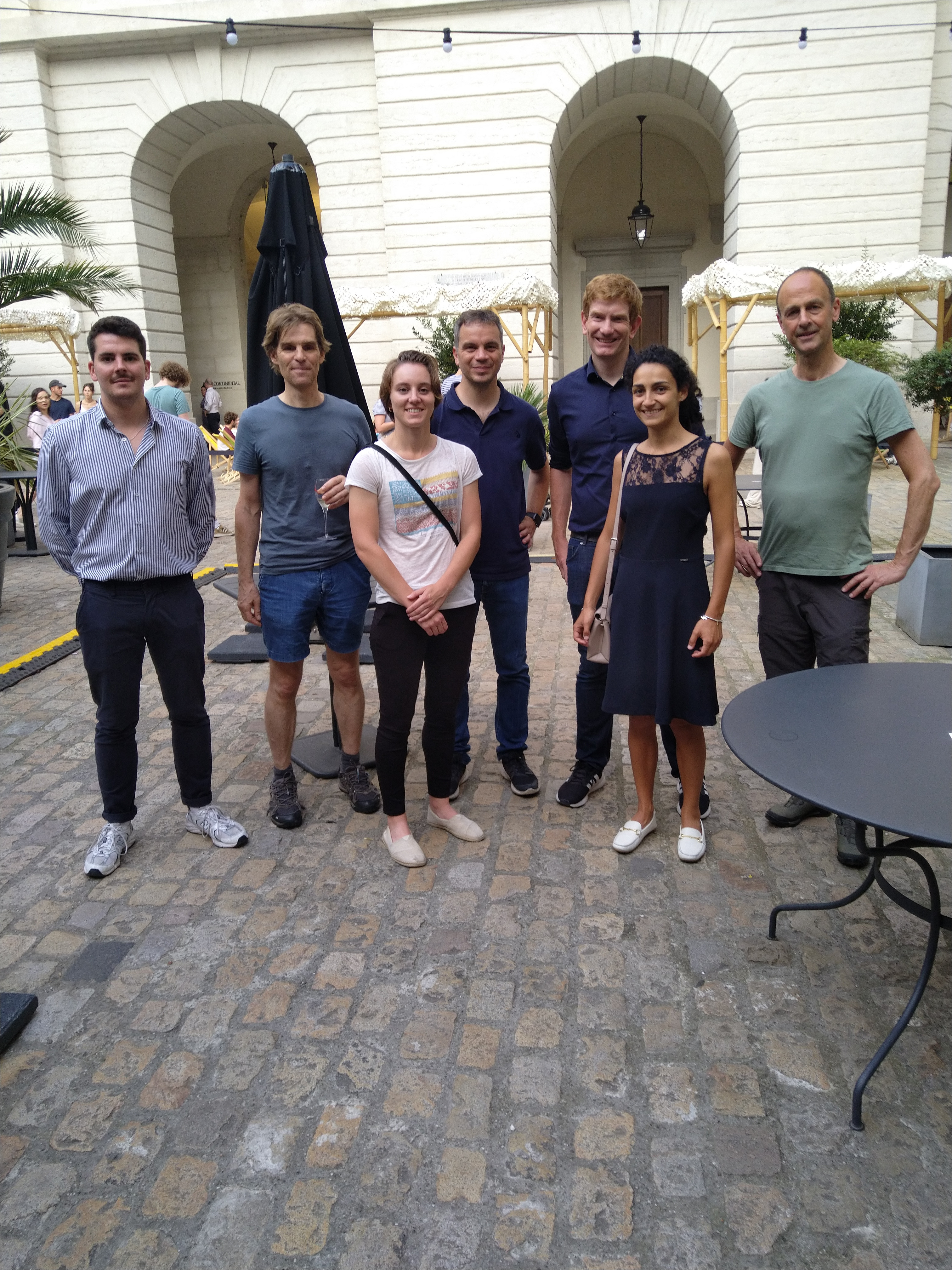
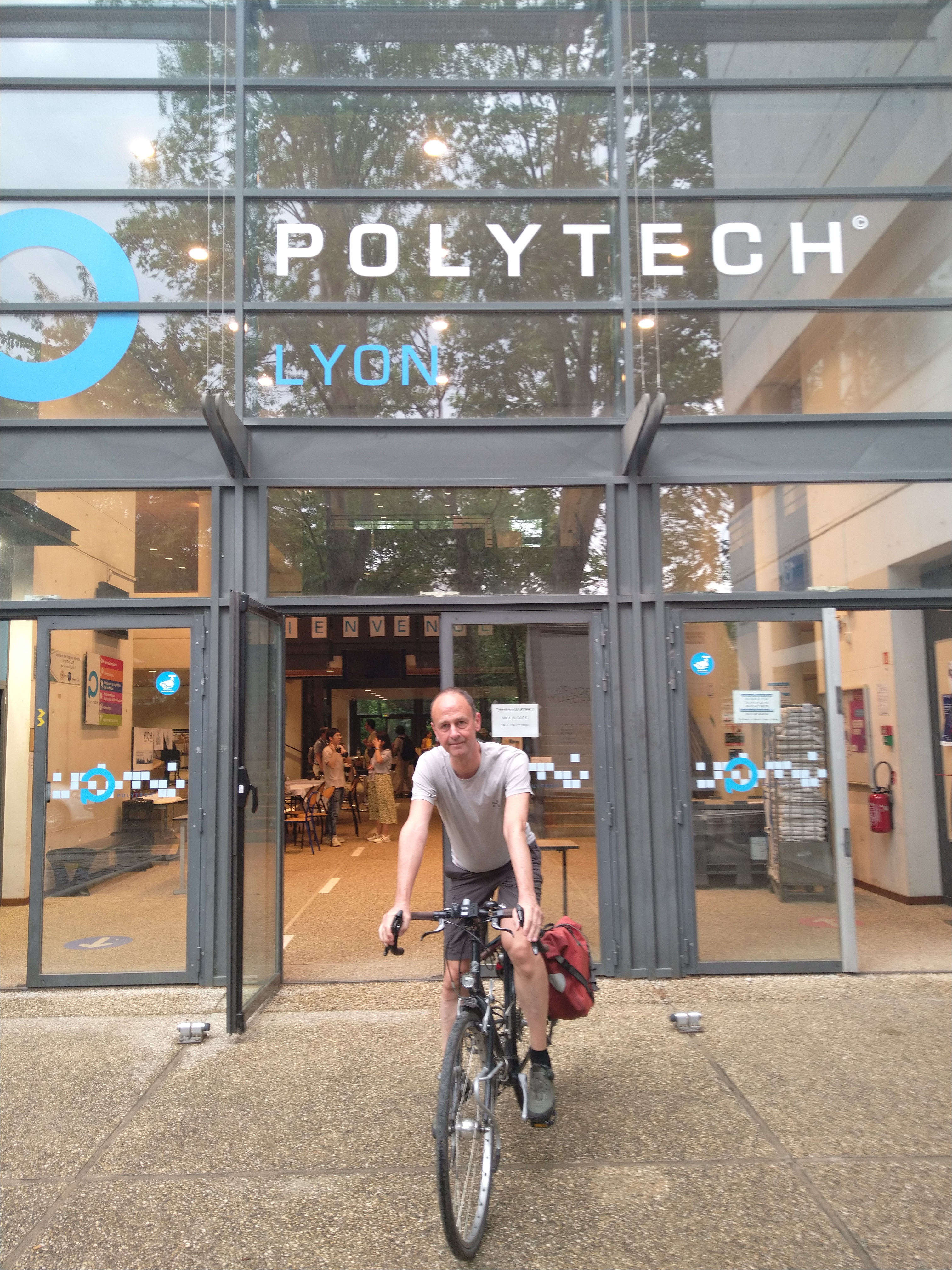
Seven of us attended the 12th Functional Imaging and Modeling of the Heart (FIMH) meeting in Lyon, where Simone Pezzuto and Lia Gander (USI) presented MICROCARD work. The biannual FIMH meetings combine mathematics with medical imaging and cardiac modeling or simulation. All of these fields play a role in our project, next to HPC of course.
Thanks to rapid rail connections, none of us had to fly to get there, from Karlsruhe, Bordeaux, Lugano or Pavia. Mark Potse came by bicycle from Bordeaux as, he says, "it's on my way to Strasbourg anyway".
19-21 June 2023: the 7th ECCOMAS Young Investigators Conference in Porto
The ECCOMAS Young Investigators Conference provides young researchers working in computational science and engineering fields an opportunity to present their research and to network in a young and dynamic environment. Two of our post-docs presented their ongoing works within the MICROCARD project.
Giacomo Rosilho de Souza presented a Boundary Element discretization for the cell-by-cell model, jointly proposed with Simone Pezzuto and Rolf Krause.
Ngoc Mai Monica Huynh presented results related to BDDC preconditioners for composite discontinuous Galerkin discretizations of the same model, a joint work with Luca Pavarino, Simone Scacchi, Fatemeh Chegini and Martin Weiser.
6 June 2023: COUPLED PROBLEMS meeting in Chania
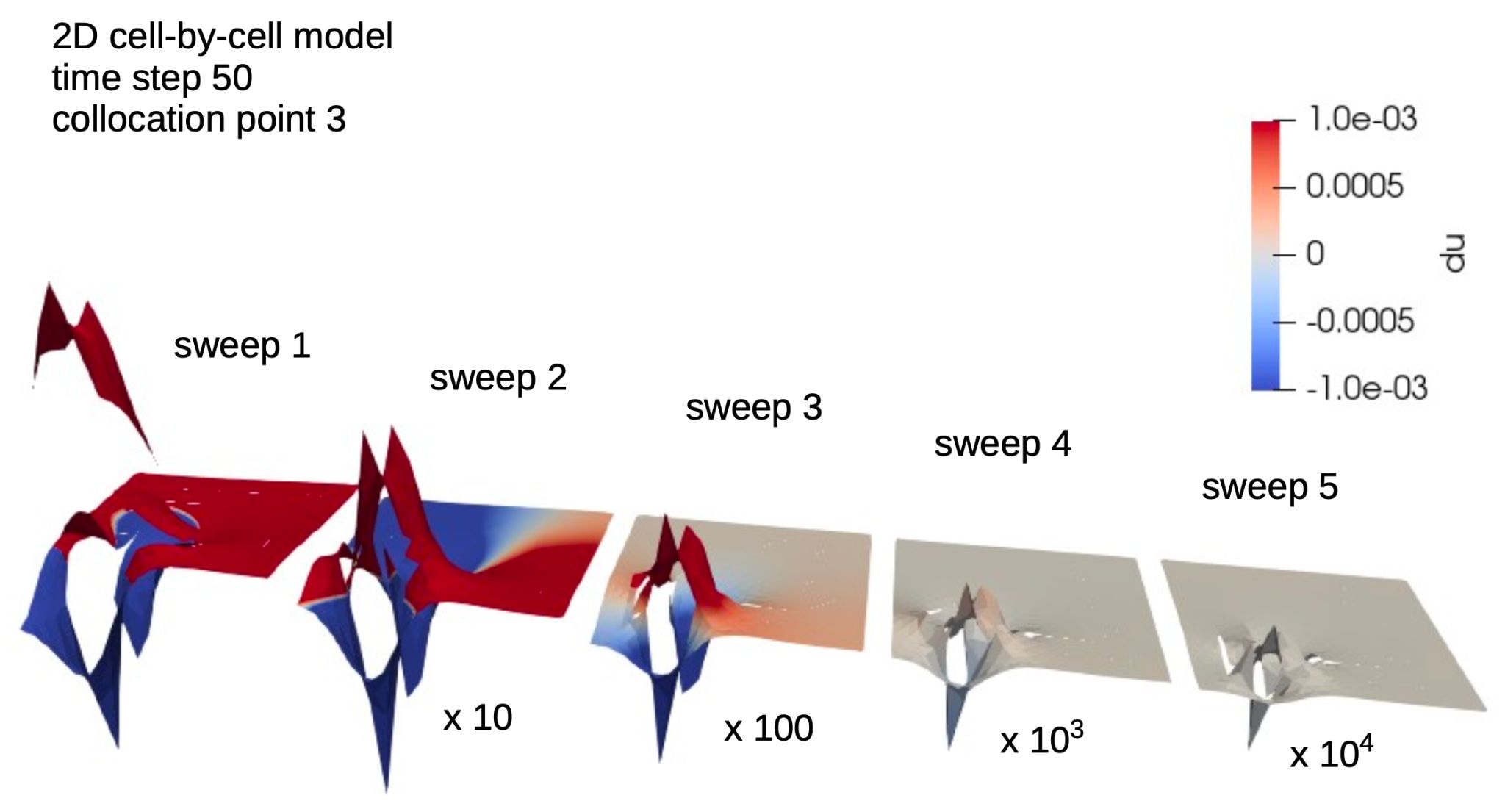
Martin Weiser presented our latest developments in numerical methods for cell-by-cell heart models at the International Conference on Computational Methods for Coupled Problems in Science and Engineering (COUPLED PROBLEMS 2023) meeting in Chania, Greece. The conclusions, briefly:
- multirate integration and spectral deferred correction (SDC) methods play exceedingly well together
- multirate SDC is a cheap and simple method for cardiac simulation
- tailored BDDC preconditioners are highly effective for cell-by-cell models
The multirate and SDC methods were developed by Fatemeh Chegini and Martin Weiser at the Zuse Institute Berlin, while the BDCC methods are the work of Ngoc Mai Monica Huynh, Simone Scacchi and Luca Pavarino at Università di Pavia.
In the accompanying conference proceedings paper we will also show that we improved our methods (developed by Mark Potse, Algiane Froehly and Luca Cirrottola) to create synthetic models of cardiac tissue, so that we can now generate models comprising thousands of cells.
24 to 26 May 2023: openCARP workshop in Karlsruhe
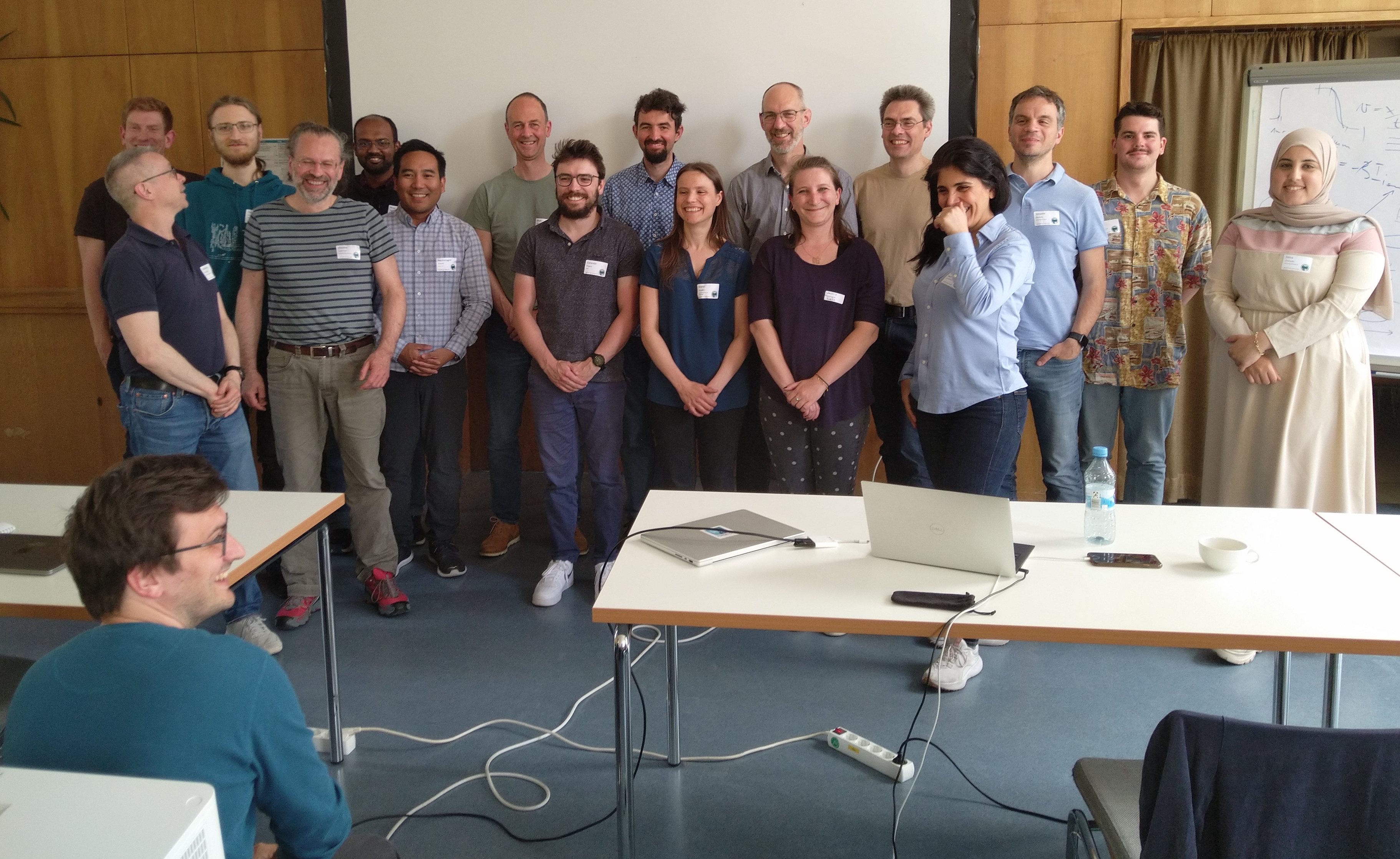
A large delegation of MICROCARD members attended the openCARP workshop in Karlsruhe from 24 to 26 May, 2023. MICROCARD builds on openCARP and some of its developments also benefit the original software. Vincent Loechner presented the Limpet-MLIR framework which makes ionic model computations in openCARP several times faster and energy-efficient, and is making the use of more precise and compute-intensive models feasible. Martin Weiser presented the numerical approach that MICROCARD is taking and Fatemeh Chegini discussed how this is implemented in the openCARP code. Finally, Laetitia Mottet and Corentin Prigent gave a short course on the Mmg meshing software, a crucial element of the MICROCARD project and of possible use to many openCARP users as well.
16 and 17 March 2023: live meeting on numerics in Berlin
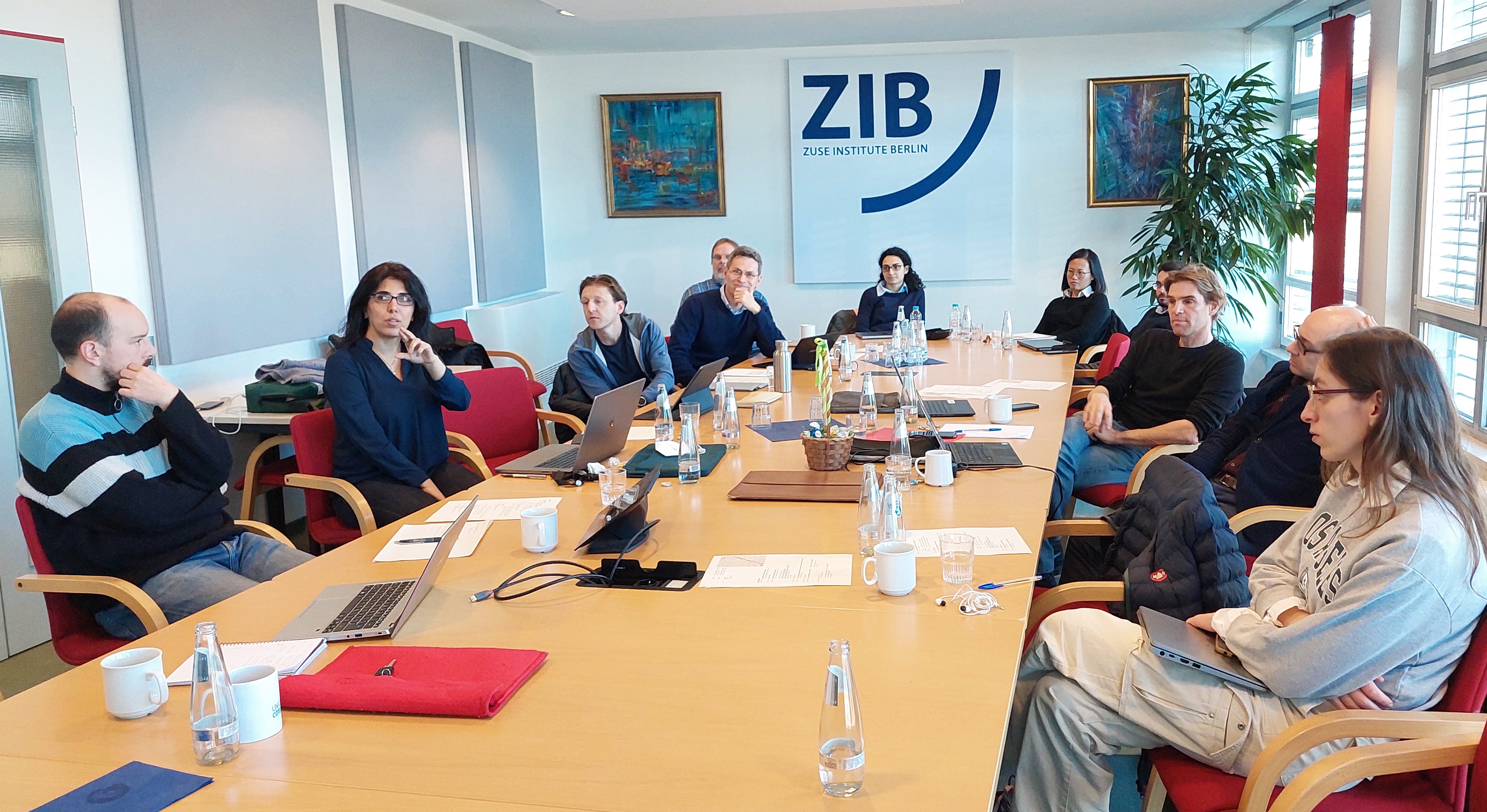
Participants in work packages 3 and 5 met at the Zuse Institute in Berlin to discuss the state of research and software development in space and time discretizations as well as preconditioners. Also on the agenda were concrete implementation aspects such as the modularization concept, software structure, and code, planned joint papers and reports. Overall it was an intense and very productive meeting, that the participants enjoyed very much. (more photos on LinkedIn)
26 February to 3 March 2023: SIAM CSE meeting in Amsterdam
Martin Weiser, Simone Pezzuto and Ngoc Mai Monica Huynh presented MICROCARD results at the SIAM Conference on Computational Science and Engineering (CSE23) in Amsterdam, The Netherlands. Several other members attended the meeting.
More about Simone's work can be read in the manuscript "Boundary Integral Formulation of the Cell-by-Cell Model of Cardiac Electrophysiology" which is curently under review.
13 December 2022: Mmg release 5.7.0

Mmg version 5.7.0 was released. Mmg is a set of tools and software libraries that we use to construct and improve meshes of cardiac tissue on which we can run our simulations. The release features developments that are crucial for the MICROCARD project, such as 64-bit integers, necessary for meshes with more than a few billion elements. In addition there are several improvements and new features for the isosurfacing functionality.
30 November 2022: Our first Periodic Report submitted
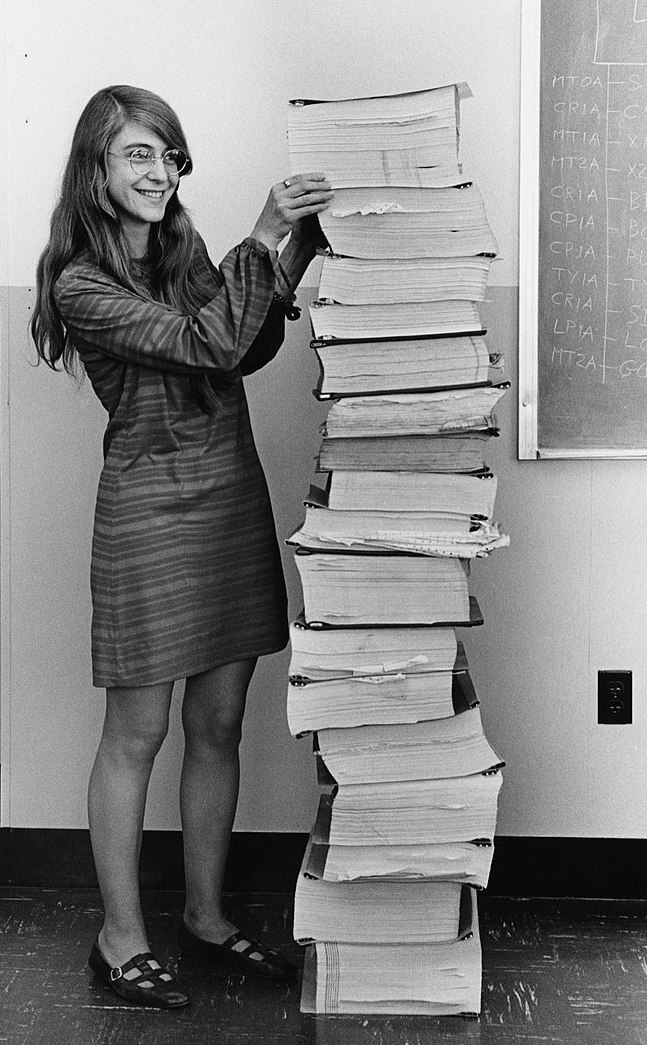
Today we submitted the first of our two Periodic Reports to EuroHPC. This report covers the first 18 months of the project.
MICROCARD's goal is to develop software that can simulate the heart cell by cell, that is at micrometer resolution, on exascale supercomputers. The first 18 months of the project were characterized by the construction of building blocks, a prototype implementation of the cell-by-cell model, and the design of the exascale-ready code that will integrate these building blocks. Functionality that we need has been added to the existing software libraries on which the project builds, and is already available for others to use. Examples are recent releases of the ParMmg code, the Ginkgo linear algebra library, and the openCARP cardiac simulation software.
In addition we worked on the interpretation of imaging data to construct tissue geometries, and we developed a code that can produce artificial geometries that are much larger than would be possible with microscope images. We also developed alternative numerical approaches to the mathematical problem, methods to distribute computational work on millions of processors, and strategies to reduce the energy consumption of our code.
The project has supported the publication of 8 journal papers so far, and as many presentations at scientific conferences. We have also participated in events aimed at a larger audience. We regularly post news about our project here on our website and on LinkedIn.
The image does not show our Periodic Report, nor one of us. It is a 1969 photo of software engineering pioneer Margaret Hamilton standing beside a listing of the software, developed by her and the team she led, for the Apollo space program.
15 November 2022: #RESET webinar
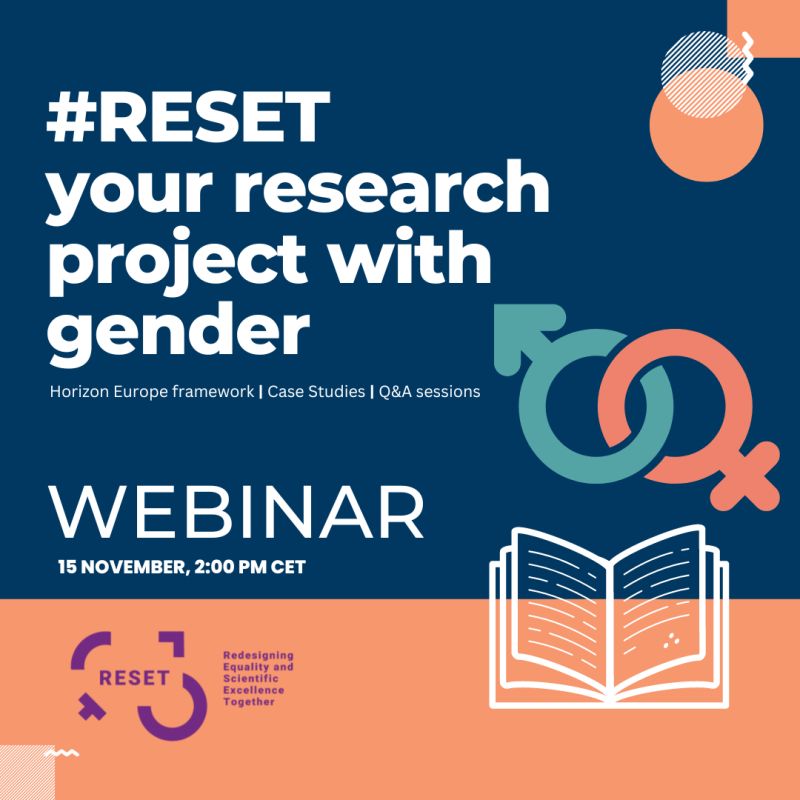
The lack of gender equality in academia is a serious problem both from moral and from practical points of view. This is especially the case in computer science. Even though the first computer programmer ever was a woman, the first programming language was invented by a woman, the first compiler was invented by a woman, and the software that sent the first men to the moon was developed by women, the western world has since the 1980s become convinced that computer science is unsuitable, inhospitable, or unattractive for women. This leads to many missed vocations and unused talent, hurting projects like ours.
Therefore MICROCARD participated as a case study in the 3rd webinar on Gender Equality in Research organized by the project #RESET I Redesigning Equality and Scientific Excellence Together. These webinars aim to provide guidance and tools to integrate gender and diversity concepts into research projects.
Presentations were given by researchers from a variety of disciplines, as well as experts on gender inclusivity, and EC Policy Officer Athanasia Moungou. Our project coordinator Mark Potse presented the MICROCARD project and its efforts to strive for gender equality in our fields of research. Other projects that were highlighted included Critical ChangeLab, presented by Eva Durall and feast2030, presented by Aleksandra Rozalska, while Dalila Chenaf-Nicet talked about Gender and unintentional discrimination.
The recording of this webinar is now available on Youtube.
13 November 2022: Ginkgo release 1.5.0

Version 1.5.0 of the Ginkgo library for sparse linear algebra on CPUs and GPUs was released. It includes several improvements relevant to the MICROCARD project, such as multi-node support for all matrix formats and most solvers; full DPC++/SYCL support, and GPU-resident sparse direct solvers.
17 October 2022: Anatomic lesson by Dr José A. Cabrera
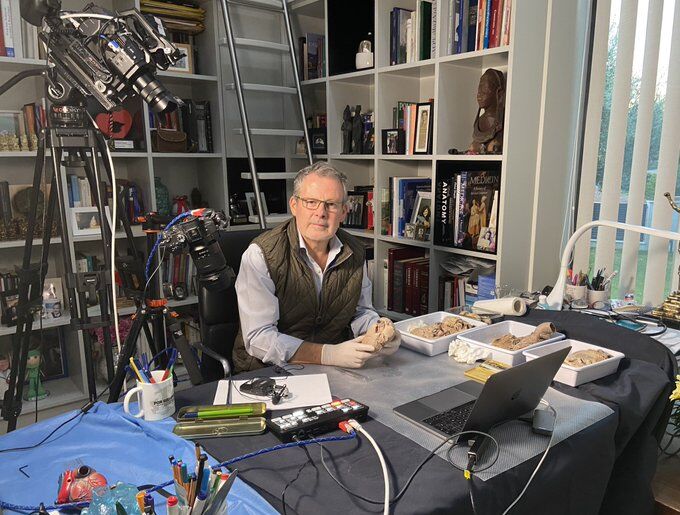
Several MICROCARD members attended an online interactive cardiac anatomy lesson given by Dr José Cabrera, a world-renowned expert in the percutaneous treatment of heart rhythm problems, for students in the MSc program Electromechanical Heart Diseases given at the Liryc institute in Bordeaux.
In these sessions, which Dr Cabrera performs for Liryc about yearly, he demonstrates human or animal heart samples to highlight the structures that are most interesting for cardiac electrophysiologists. Professional cameras and lighting techniques are used to allow the audience to look over the teacher's shoulder and to zoom in when needed.
For many of us, this was an unusual experience. Emmanuelle Saillard (computer scientist): "He mentioned a lot more names than I can remember, but it was impressive to see a heart this way. Frankly, I didn't expect this."
14 October 2022: Aslak Tveito will step down as director of Simula
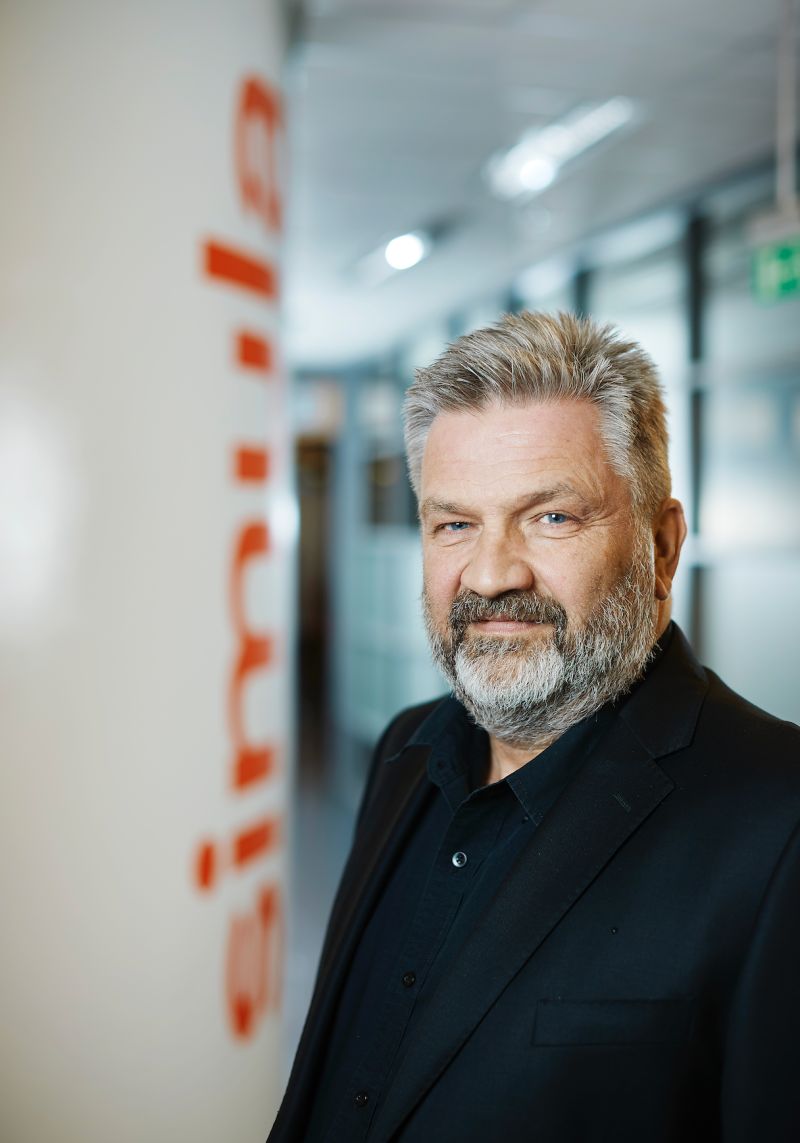
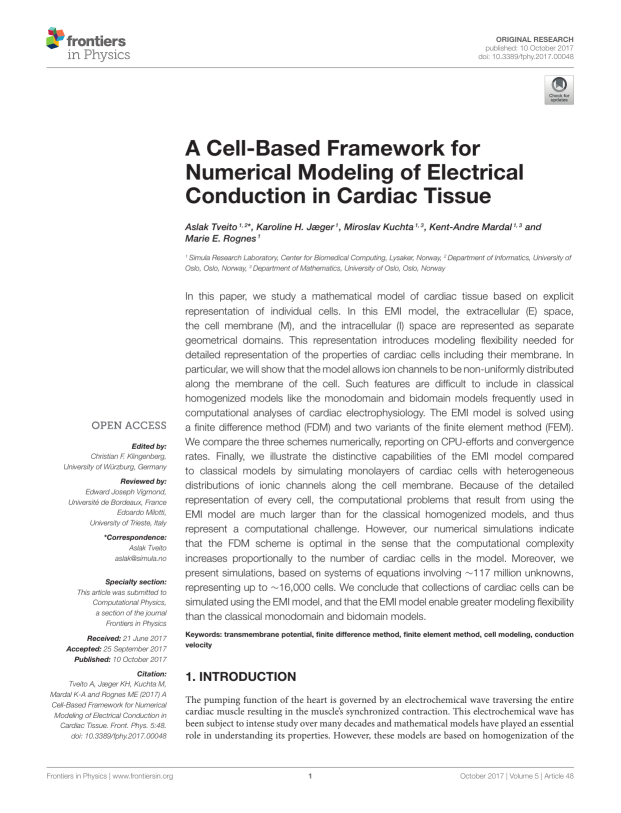
Simula Research Laboratories announced that its CEO Aslak Tveito will step down in January 2023, after having led Simula for more than 20 years. Dr Tveito plans to spend more time on his research, which includes the "EMI Framework", the concept of modeling electrically active tissue on a cellular scale with separate intracellular and extracellular spaces, which also underlies the MICROCARD project. We think that this could be very good news for cardiology and neurology research.
October 2022: Simone Pezzuto becomes an assistant professor in Trento
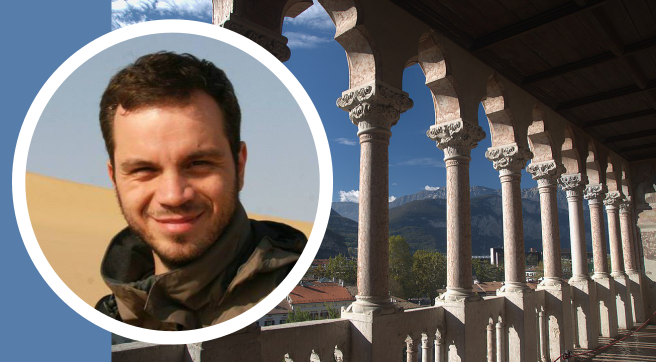
The next MICROCARD member to move is Simone Pezzuto, who left USI to become an assistant professor at Università di Trento. Fortunately for us, he too will maintain a relationship with USI that allows him to participate fully in the project.
In Trento, Simone will in the Department of Mathematics. Next to his research work he will teach a 9-ECTS course in Mathematical Biology, for MSc students in Mathematics.
September 2022: Amina Guermouche is now an associate professor at Bordeaux INP
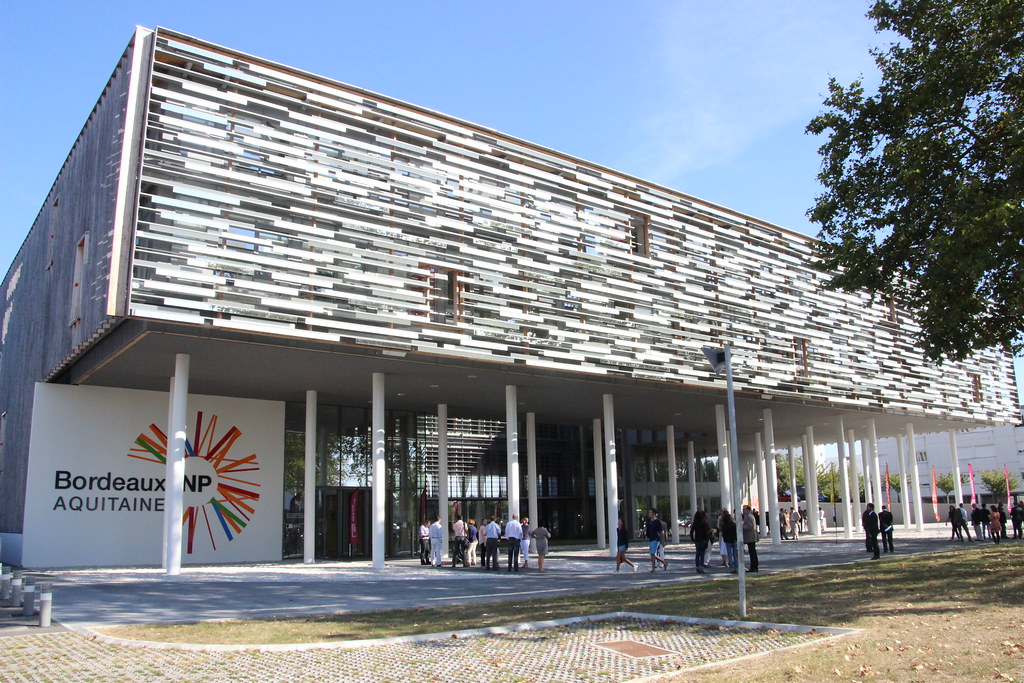
Many good things are happening to MICROCARD members this year. Amina Guermouche, until recently a research engineer at Inria, won a position as maître de conférences (associate professor) at the engineering school Bordeaux INP. Next to her new teaching duties she will continue working on the MICROCARD project, but most of her tasks will be taken over by Mariem Makni who moved from WP7 to WP2.
Francesco Brarda, who worked as an engineer on WP7, left for a PhD student position at Emory University. To replace him and Mariem, Laetitia Mottet and Corentin Prigent will join us in October.
July 2022: Hartwig Anzt nominated director of the Innovative Computing Laboratory
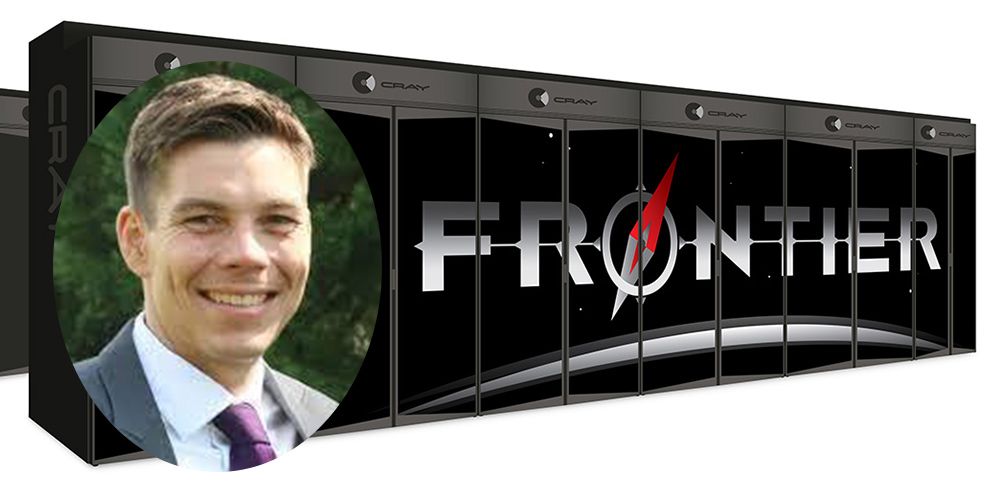
It is now official: Hartwig Anzt, one of our Work Package leaders, is the new director of the Innovative Computing Laboratory at the University of Tennessee. In this position he is succeeding Jack Dongarra, laureate of the 2021 Turing Award. We are very proud of this prestigious nomination and relieved to know that Hartwig has retained a part-time professorship at the Karlsruhe Institute of Technology, which allows him and his team members to continue participating in the MICROCARD project.
6 and 7 July 2022: the first in-person MICROCARD workshop
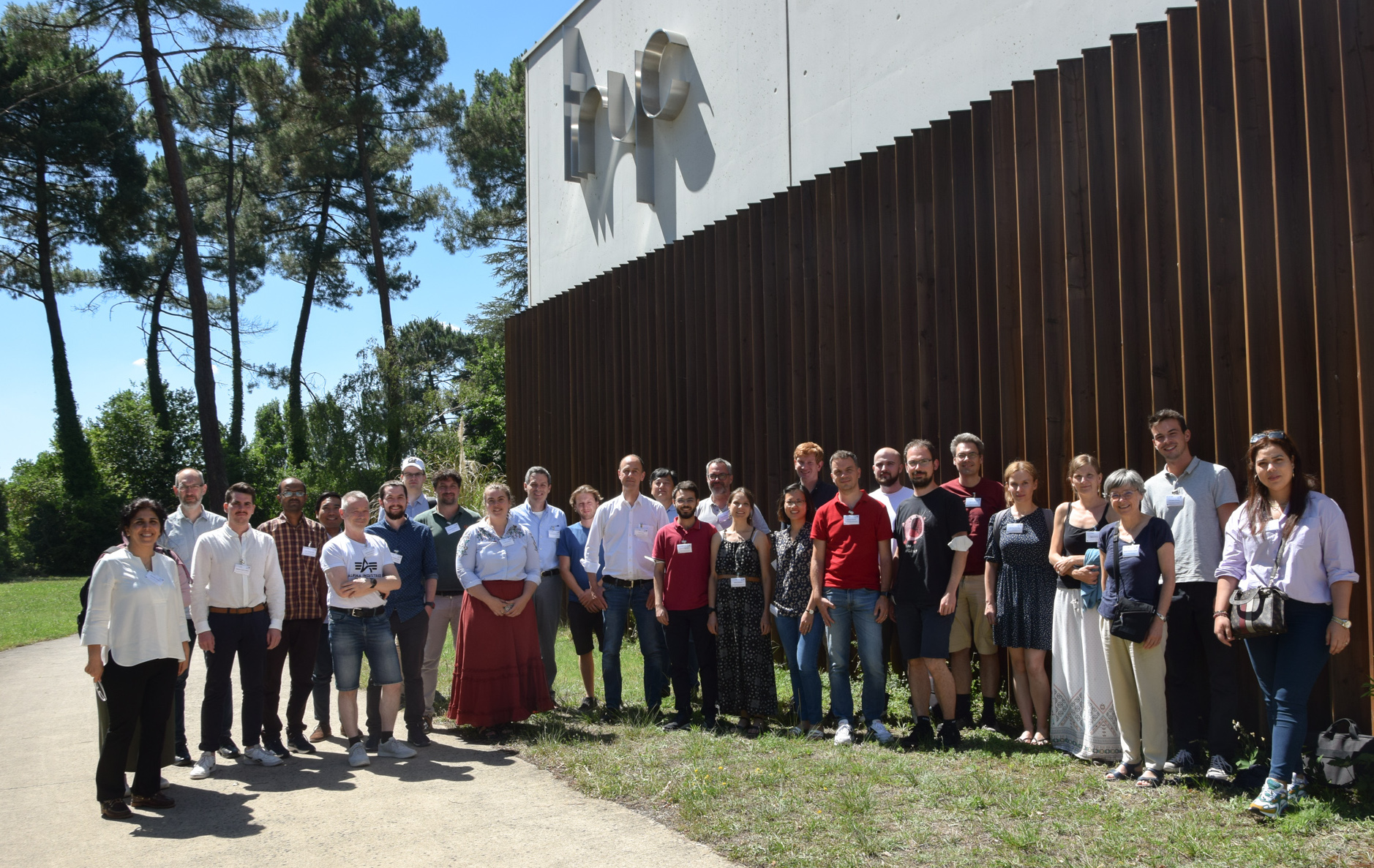
On the 6th and 7th of July 2022 our second workshop took place, this time face-to-face in the amphitheatre of the Liryc institute in Pessac, near Bordeaux. The meeting opened with an introduction by project coordinator Mark Potse followed by a keynote lecture by the computer scientist Professor William Jalby. Twelve presentations were given by project members, about their work in the project. Two presentations were planned to be given by members of our end-user advisory board, Eva Rog-Zielinska and Carol Ann Remme, but as Dr Remme had to cancel at the last minute, Dr Richard Walton from Liryc stood in with a presentation about micro-CT imaging. The meeting was completed with a guided tour of the experimental platforms of the Liryc institute. The complete program of the workshop is available on the events page.
We received 37 participants on-site and a dozen more online. Four of us had to return home due to a canceled train in Germany, one was forced to spend an unforeseen night at an airport hotel in Spain, and one made it barely ahead of a railway strike in France. In the end, only one presentation had to be given online.
June 2022: MICROCARD in Hamburg, Oslo, Paris, Milan, Budapest, and online
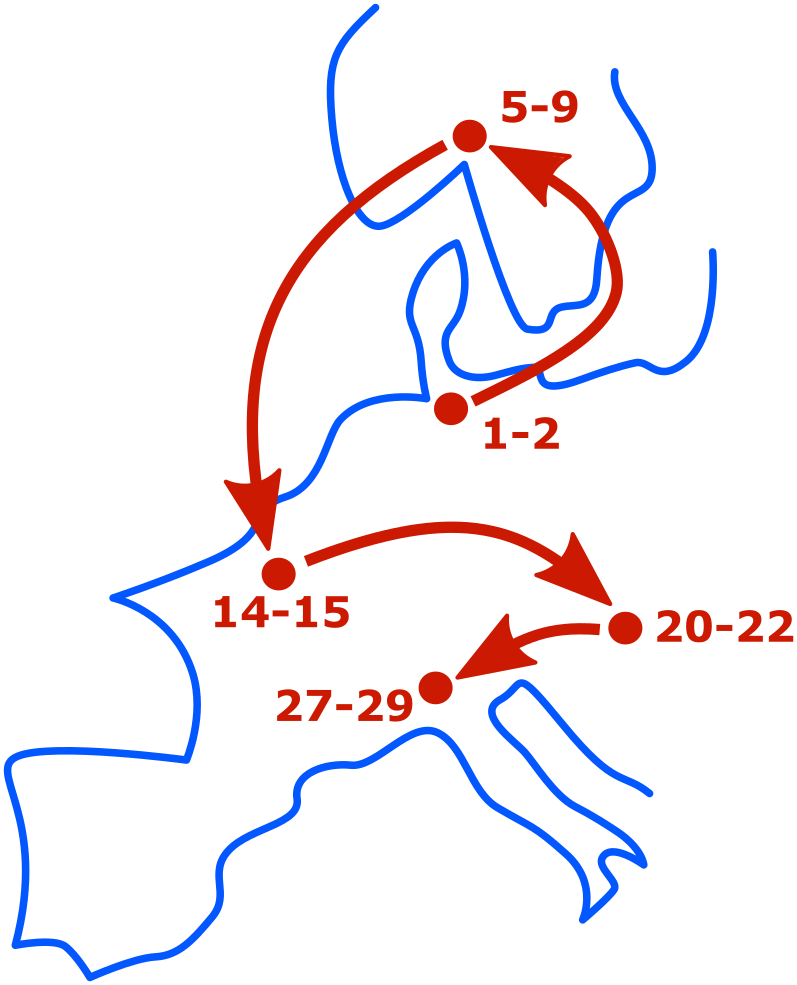
This month, the MICROCARD project was presented at the Teratec Forum 2022 on 14 and 15 June in Paris, and at the 5th Workshop on Heterogeneous and Low-Power Data Center technologies in the EuroHPC Projects Context (HeLP–DC) which is part of the HiPEAC meeting in Budapest on June 20–22.
Amina Guermouche presented MICROCARD results at the 4th Workshop on Resource Arbitration for Dynamic Runtimes (RADR), part of the IEEE IPDPS meeting. In her talk "Combining Uncore Frequency and Dynamic Power Capping to Improve Power Savings" she discussed new methods to reduce power consumption of large-scale computations by automatically adapting the speed of different computer parts to the needs of the program. The IPDPS meeting was 100% online this year.
Marie Houillon talked about the integration of the Ginkgo library in the openCARP software at the ISC High Performance meeting on May 29 to June 2 in Hamburg.
Giacomo Rosilho de Souza and Mark Potse presented MICROCARD work at the ECCOMAS meeting on 5-9 June in Oslo.
Giacomo will also present work on parallel-in-time methods at the CMBE meeting on 27-29 June in Milan.
1 June 2022: News from the ISC22 meeting
The ISC High Performance meeting took place from May 29 to June 2 in Hamburg. MICROCARD was present in several ways: Partner and supercomputer manufacturer MEGWARE took part in the exposition. Marie Houillon presented the integration of the Ginkgo library in the openCARP software, which is an important step in our work. And we were happy to see that EuroHPC executive director Anders Dam Jensen mentioned us specifically in his presentation.
Also at ISC22, Jack Dongarra unveiled the new top-500 of the world's fastest supercomputers. It included the first acknowledged exascale supercomputer, and had the recently installed French supercomputer Adastra in the top-10 with 46 Pflop/s. We will need exascale machines for our work and although we'll probably not get our hands on them soon, this first instance is good news for us.
Prior to the ISC meeting Dr Dongarra, whom we also know as creator of famous linear algebra software packages such as LINPACK and winner of the 2021 Turing Award, had made a visit to our partner KIT where he gave a lecture at the Steinbuch Computing Center, introduced by his former pupil Hartwig Anzt. The photo shows Hartwig Anzt, Steinbuch director Martin Frank, and Jack Dongarra between the racks of the HoreKa supercomputer at KIT. In the background, from left to right, Stefano Maurogiovanni, Vasilis Georgiou, Rached Chaaben, and Mike Tsai.
19 May 2022: Local meeting in Bordeaux
Today the project members in Bordeaux had a bilingual, interdisciplinary, interinstitutional and inter-work package meeting. Presentations by Emmanuelle Saillard (WP2), Zeina Chehade (WP3), Vincent Alba (WP2), Algiane Froehly (WP7), Francesco Brarda (WP7), and Mark Potse (WP7) represented the multidisciplinary character of the project, covering mathematical proofs, code optimization, large-scale parallel remeshing, and construction of tissue models. It was great to benefit from the wide range of expertise present.
9 May 2022: Interview with Stefano Maurogiovanni, ERASMUS+ intern at KIT
Stefano Maurogiovanni is an MSc student at the University of Pavia who is currently doing an internship in the group of Hartwig Anzt at KIT, where he is implementing a distributed solver based on algebraic multigrid (AMG) methods in the Ginkgo library, to support the MICROCARD project. In this article published by KIT Stefano and his colleague Rached Chaaben talk about their experience at KIT's Steinbuch Centre for Computing.
In Pavia Stefano is directed by Stefano Gualandi and Luca Pavarino. His stay at KIT was made possible by the ERASMUS+ program of the European Union and strengthens the collaboration within the MICROCARD project.
29 April 2022: MICROCARD leading the way in European supercomputing
MICROCARD is one of nine European supercomputing projects showcased in the brochure Leading the way in European supercomputing issued by CORDIS on behalf of the European Commission. These short stories give an easy to understand overview of what problems supercomputers are solving today.
9 April 2022: follow us on LinkedIn
We're now on LinkedIn as Project MICROCARD
Upcoming: summer school on cardiac electrophysiology
The Liryc summer school on cardiac electrophysiology is now open for registation. It will take place shortly before our project workshop in July 2022, at the same location. It is combined with a 2-day meeting of the PersonalizeAF project.
4 February 2022: first MICROCARD workshop
Our first project workshop took place on 4 February 2021. This edition was fully online; we hope for an in-person meeting in the summer.
22 December 2021
The European Processor Initiative writes: "The main result of general-purpose processor activities in EPI phase one, the Rhea processor, will be instrumental for the launch of European exascale supercomputers in 2023."
Friday 10 December 2021: our first conference abstracts
Our first conference abstracts have been submitted to the ECCOMAS meeting taking place in Oslo, Norway, June 2022, and to the WCCM-APCOM meeting in Yokohama, Japan, August 2022.
Tuesday 31 August 2021
The 2021 edition of the ETP4HPC handbook of European High-Performance Computing Projects is published, covering MICROCARD among 68 European HPC projects. If you don't like ads and cookies you can also download it in PDF format here.
Friday 27 August 2021
One new job opening in Lugano and two other positions still open on our jobs page.
Friday 2 July 2021
One new job opening and three other positions still open on our jobs page.
Wednesday 14 April 2021: funding complete
Today the German BMBF confirmed that the project will be co-funded from their side, so now we are sure that the project is completely funded.
12 February 2021
Today the Austrian FFG signed the funding contract for our Austrian partner, Numericor. Thus, five of the six national funding agencies that are involved have confirmed their co-funding for the project. Only the German BMBF is still working on it.
18 December 2020: Grant Agreement signed, ready for take-off!
This week the Grant Agreement for the MICROCARD project was signed by EuroHPC and by the partner institutes. We are now sure that the project will start on 1 April 2021.
24 September 2020
The project made its first public appearance today at the TERATEC Forum.
14 July 2020
The EU confirms that the MICROCARD project passed the evaluation stage. This means that it will be funded, if all of the parties agree with the Grant Agreement that is now to be prepared.
14 January 2020
After 3 months of very intensive work the MICROCARD proposal was submitted to EuroHPC.
